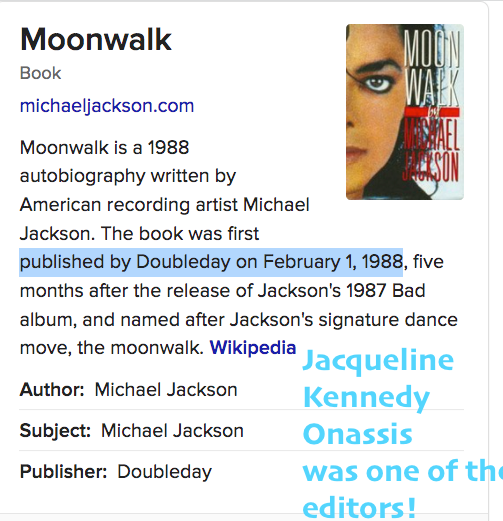
As per Town and Country,
In college, she wrote a series of essays that won Vogue magazine’s Prix de Paris contest. While she was at the White House, she was deeply involved in the production of a book on its restoration, even selecting its typeface. Later, when Kennedy speechwriter Ted Sorensen asked her to read in early stages a book he’d written on the president, she not only made suggestions and clarified sentences but corrected typos.
Once Jackie had safely made it into the Viking headquarters, she happily settled into her small office, containing a desk and filing cabinet, and a single window. She made no pretense about her needing to “learn the ropes.”
Many of her new colleagues were intimidated by the queen of Camelot landing on their floor and there was some “eye rolling,” but one, Barbara Burn, asked if she’d like to have lunch. After their meal at the Carlyle Hotel, discussing typical editor duties, Jackie paid for both their lunches. As they got ready to go, Burn advised her to keep the receipt. Jackie, puzzled, said she’d already paid for it in cash. Burn told her, “No, no, you’re supposed to charge it and keep the receipt.”
Jackie dove into the job. Her new co-workers soon got used to seeing her answer her phone, wait in line at the copying machine, make her own coffee, and smoke a cigarette while going through her in-box. Over and over again, those who worked with Jackie as an editor throughout these 19 years said she wanted to be treated like everyone else.
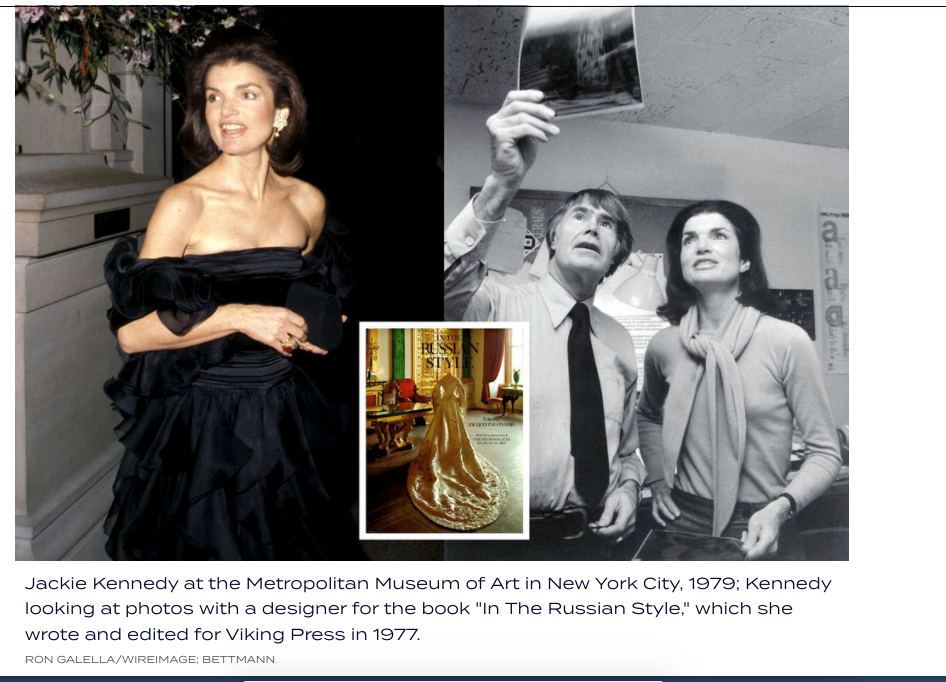
Following a controversy over Viking’s decision to publish the Jeffrey Archer novel Shall We Tell the President?, with a plot about an assassination attempt on Ted Kennedy, Jackie resigned and took the job of associate editor at Doubleday. There she attended editorial board meetings where she was expected to pitch her ideas and argue for acquisitions. Jackie joined the fray, and when her ideas were sometimes rejected, she took it in stride.
To meet Doubleday’s more commercial mandate, Jackie spent four years wrangling an ambivalent Michael Jackson. The resulting book, Moonwalk, sold 500,000 copies and snagged the top spot on the New York Times best-seller list in 1988.

You will find here that,

https://www.amazon.com/Moonwalk-Michael-Jackson/dp/0307716988
Some of her other Doubleday books included
- False Dawn: Women in the Age of the Sun King by Louis Auchincloss
- The Last Tsar by Edvard Radzinsky
- To the Inland Empire: Coronado and Our Spanish Legacy
She acquired the rights to the novels of the Egyptian writer and Nobel Prize winner Naquib Mahfouz and arranged for English language translations.
Jackie believed that the author was the star of the book, and she insisted on staying in the background. Often a reader enjoying a book she edited had no idea that the former First Lady was the one who acquired and shaped it. Her authors loved Jackie’s supportive role throughout, cherishing her elegant, enthusiastic editorial letters suggesting revisions and her ideas on cover design.
he rarely gave interviews, but in one she revealed her pleasure in her career with a telling anecdote:
“I remember a taxi driver who said, ‘Lady, you work and you don’t have to?’ I said, ‘Yes.’ He turned around and said, ‘I think that’s great!’”
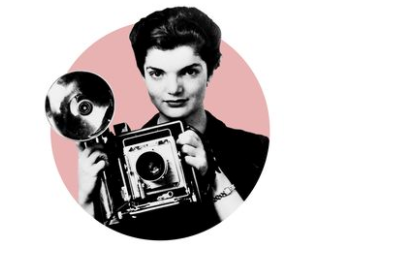
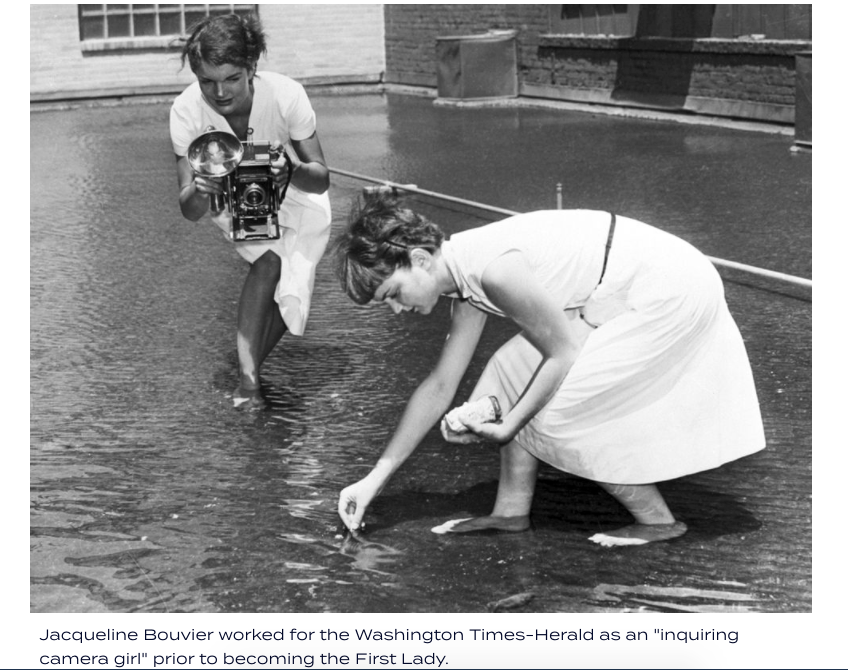
As per History.com
- She worked as a reporter and photographer.
- She was briefly engaged to another man before marrying John F. Kennedy.
- She was both admired and criticized for her fashionable clothing.
- She launched a massive renovation of the White House.
- She opened a school in the White House.
Despite her own background as a reporter, Onassis strived to shield her two children from the media during her time in the White House. When press scrutiny and security concerns made it difficult for her young daughter Caroline to travel into the city, Onassis turned the White House’s third floor solarium into a nursery school and invited other kids—some of them children of Kennedy administration staff—to attend. The school later grew into a fully operational kindergarten complete with around ten students, professional teachers and even a small collection of rabbits, guinea pigs and other animals. - She spoke multiple languages.
- She refused to change her bloodstained pink dress on the day of the JFK assassination.
- She was the first to refer to the Kennedy administration as “Camelot.”
- She won a famous court case against a member of the paparazzi.
- She was a successful book editor.
As per the New York Post,
In 1979, an issue of Gloria Steinem’s Ms. Magazine featured Jackie Onassis on the cover with the headline: “Why Does This Woman Work?”
At the time, it was a question that had confounded much of the country. Jackie’s starting salary was just $200 a week, so the former first lady, now in her late 40s, clearly wasn’t doing it for the money. (She’d inherited $26 million from her late second husband, Aristotle Onassis, so paying the bills wasn’t a concern.)
Even though she could have been whiling away her time on a yacht, she spent almost two decades as a book editor, first at Viking (from 1975 to 1977) and then at Doubleday (from 1978 until her death in 1994), leaving behind a legacy that still isn’t especially well-known.
A new novel, “The Editor” by Steven Rowley, brings to life this time, imagining Jackie in the title role in early 1990s New York. Yet even Rowley was only vaguely aware of her publishing career before he started writing his book.
“But the more I learned about it, the more it seemed like the most interesting part of her life,” he told The Post. “It’s the only part where she’s not defined by her relationship with a man.”
Her desire to work was, in fact, rooted in something very simple.
“She was bored,” said historian William Kuhn, author of “Reading Jackie: Her Autobiography in Books.”
In 1975, Jackie told Newsweek that she was perplexed by the public’s fascination over her new career. “It’s not as if I’ve never done anything interesting,” she said. “I’ve been a reporter myself, and I’ve lived through important parts of American history. I’m not the worst choice for this position.”
She’d nursed a passion for books since childhood and was such a ravenous reader that she was poring over Chekhov short stories at just 6 years old. At 21, she was hired as a junior editor at Vogue magazine — although she quit on her first day, concerned that the female-heavy staff would hinder her dating prospects — and shortly after became a columnist for the Washington Times-Herald.
In 1962, she wrote and edited her first book, “The White House: An Historic Guide,” a room-by-room photographic tour of the historic residence.
The book sold for $1 each to tourists, which helped fund her White House restoration project.
When she joined Viking as a consulting editor in 1975, she was adamant that she receive no special treatment. As the fictionalized Jackie in “The Editor” explains, her office was “a regular size and stacked high with manuscripts. I get my own coffee and wait in line to use the copier, same as anyone else.”
Rowley got it exactly right in his novel, Kuhn says. “She tried hard to blend in. Her office was small, with just one window. She answered her own phone. She didn’t want to be seen as a grande dame.”
She may have kept irregular hours, but she was more productive than editors half her age. From her brief two years at Viking — she quit after learning that they were publishing a novel about the assassination of her brother-in-law Robert Kennedy — to her tenure at Doubleday as an associate editor, where her annual salary ballooned to $100,000, she acquired and brought to publication over a hundred books.
One of her biggest successes was Michael Jackson’s 1988 memoir “Moonwalk,” which sold half a million copies. It was a hard-won victory for Jackie, who only closed the deal after begrudgingly agreeing to write the book’s forward. (She penned a three-paragraph intro that reads like jury duty.)
Stephen Davis, a career rock biographer, signed on to ghostwrite “Moonwalk” before realizing who was editing it. “I called the publisher and Jackie picks up,” he told The Post. “I’m stuttering like an idiot, and she’s like, ‘I’m really excited about this book.’ How do you make small talk with a woman like that?”
When Davis submitted a draft, which he says was a mess, he expected to be fired. But he never received editing notes and only learned months later, when the book was finally published, that Jackie loved his draft. “I have no idea what happened,” he says. “I thought it’d be the end of my career, but I guess Jackie saw something.”
She lost as many big names as she landed. Diana Ross and Frank Sinatra never returned her calls. Oliver Stone declined to let her read his unpublished novels, and Gen. Norman Schwarzkopf took his memoir elsewhere.
Though she once claimed she would “give up food to publish Hunter Thompson,” she never had the chance to work with the “Fear and Loathing in Las Vegas ” author.
Fear and Loathing in Las Vegas (10/10) Movie CLIP - Too Much Adrenochrome (1998) HD
Jackie’s notes were unsparing — she had no patience for melodrama or unnecessary exposition — and even her constructive criticism could be hilariously ruthless. Crook remembers one note that read, “Baby Samuel is so over-described it could turn one off babies.”
One of her more infamous notes to a young author, written on the margins of a manuscript: “You know, you remind me of those little terrier dogs at fox hunts … They’re just so nervous and anxious to please.”
Though Jackie could be “motherly” (Crook’s word), not all of her authors had personal relationships with her.
Davis says he met her only once, years after “Moonwalk” was published, at a party hosted by Carly Simon on Martha’s Vineyard. “I introduced myself to her as the guy who wrote the Michael Jackson book,” Davis remembers. “She gave me a look and then turned to her boyfriend Maurice (Tempelsman) and said, ‘ “Moonwalk.” Oy.’ That was it. That was the end of our conversation. Then I slunk back to my table.”
Jackie continued to edit after being diagnosed with non-Hodgkin’s lymphoma in 1994. She was marking up manuscripts in her Fifth Avenue apartment through chemotherapy and even up to her death that same year. When her son John Jr. informed reporters of her passing, he said that in Jackie’s final moments she was surrounded by friends and family “and her books, the people and the things that she loved.”
What makes her editing career so remarkable — besides that it lasted longer than her two famous marriages combined — was how it shed new light on a woman whose name is synonymous with 20th-century glamour.
“It’s not only counter to how we remember her, but it’s also counter-intuitive to our own instincts,” says Rowley. “We all stare out the office window, daydreaming about floating away on a yacht. But Jackie was on the yacht, daydreaming about the office. The very things that we find so oppressive about working in an office, those were the experiences that finally set her free.”
It is interesting Jacqueline wrote a book about Russian Style
As her stepfather's first marriage was on June 4, 1925 to Maya de Chrapovitsky (1899–1990), a Russian noblewoman.
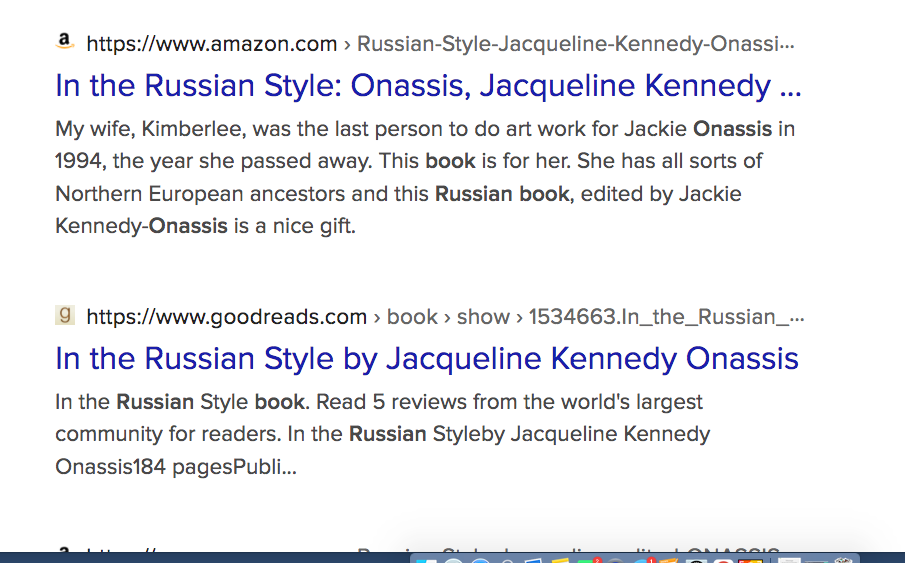
https://www.amazon.com/Russian-Style-Jacqueline-Kennedy-Onassis/dp/156731256X
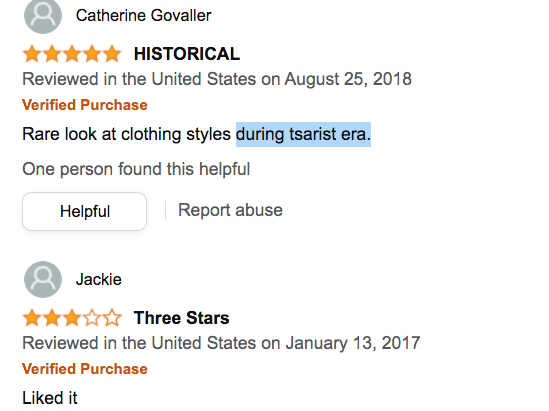
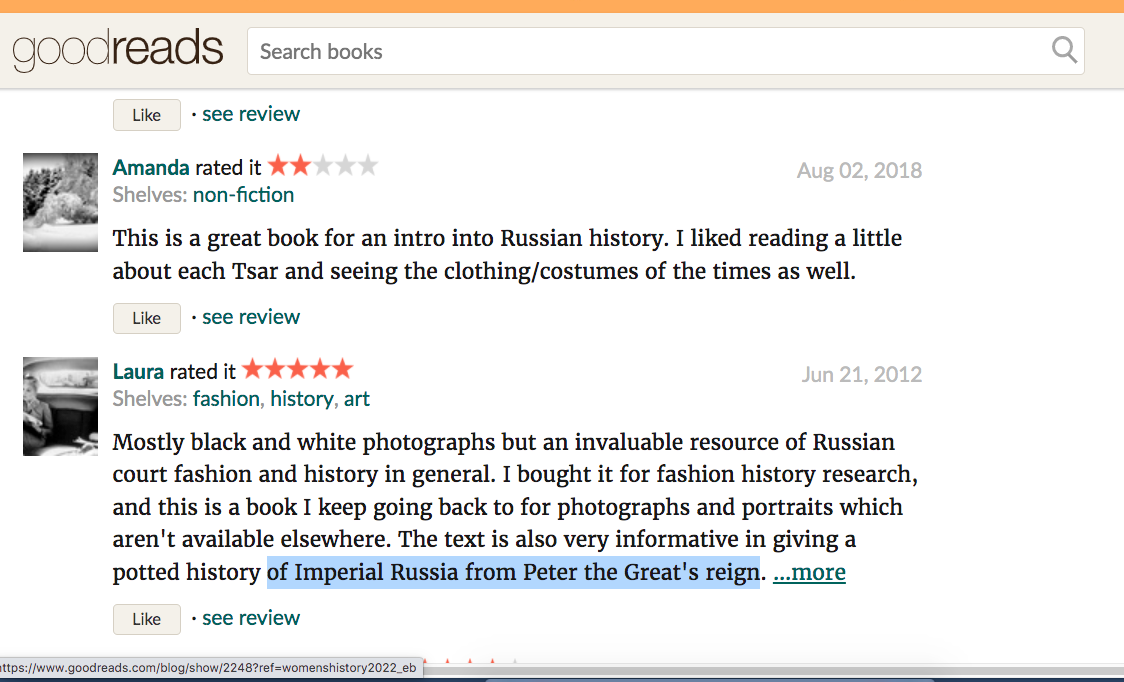
https://www.goodreads.com/book/show/1534663.In_the_Russian_Style
Peter the Great witnessed many of his family and friends murdered and another key family was murdered.

See more inside of here if you scroll down almost halfway,
But if we look back in time the Rothschild tried to have Europe once before to become a world government this was in Tsar Alexander I of Russia’s time. And All of Europe indebted to Rothschild family was ready to sign their sovereignty back then all except for one.
Then in 1864 Lincoln’s friend, the Tsar of Russia Alexander II! Rothschild was so upset that he sent in his assassins but the dream of a one world government wasn’t meant to be just yet."
It is interesting to note, Russia under Alexander II's rule had just abolished serfdom on 1861, then two years later Lincoln gave his famous speech. The Tsar of Russia had emancipated the serfs of Russia just as Lincoln would emancipate the slaves in America! Two leaders from two different countries and cultures were bonded in thoughts and actions of freedom! This was diabolically opposed to Rothschild's dream of All Control!
@artistiquejewels/story-of-the-rothschilds-their-history-and-connections
Auchincloss was responsible for getting Jacqueline Bouvier her first job in journalism at the Washington Times-Herald. He gave her away at her wedding to future president John F. Kennedy, the reception of which was held at Hammersmith Farm on September 12, 1953.
A long-time financial contributor to the Republican Party, he contributed to the campaign of his Democratic stepson-in-law, saying "I want to live in harmony with Mrs. Auchincloss and all the other members of the family.
Why was this important?
What happened to
Some history.
When Jacqueline's mother, Janet Lee Bouvier,
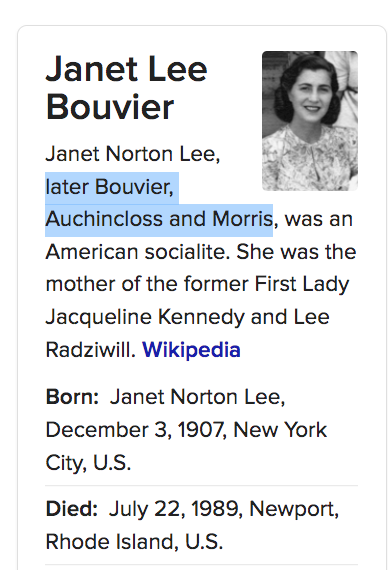

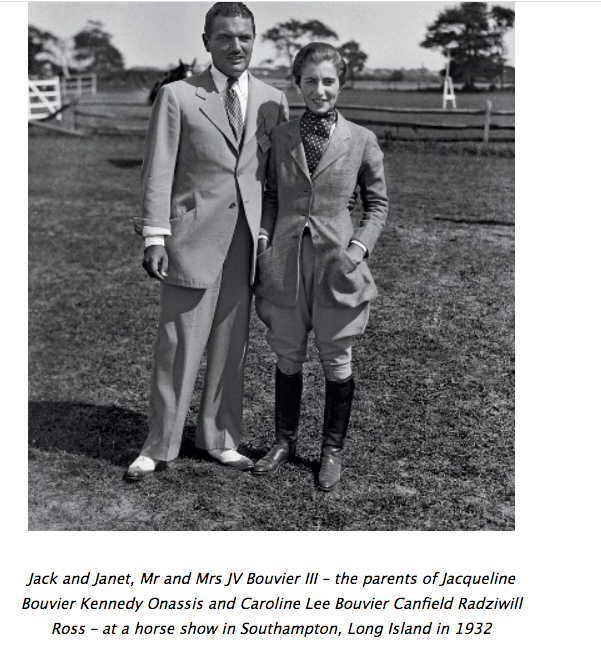
In 1942, she married her second husband, Hugh Dudley Auchincloss Jr., an attorney and Standard Oil heir; becoming his third wife.[18] Together, they had two children:
Janet Jennings Auchincloss (1945–1985),] who was married to Lewis Polk Rutherfurd in 1966.
James Lee Auchincloss (born 1947)
Hugh Auchincloss died in 1976. In 1979, she married for a third time, to her childhood friend Bingham Willing "Booch" Morris (1906–1996). Jacqueline served as her witness Morris, a widower, was a retired investment banker who lived in Southampton, New York.
From 1924 to 1926, Auchincloss practiced law in New York City, before joining the Commerce Department as a special agent in aeronautics. In 1927, he was appointed an aviation expert in the State Department.
Jacqueline's stepfather.
Four years later in 1931, he resigned government service to form a brokerage firm.
In 1931, he bought his seat on the New York Stock Exchange for $235,000 (equivalent to $3,999,000 in 2020). It was reported that he used some of the large inheritance received from his mother to found the Washington, DC brokerage firm of "Auchincloss, Parker & Redpath" with Chauncey B. Parker and Albert G. Redpath.
The firm eventually had 16 offices with two in New York City and the rest spread along the East Coast. In 1970, the firm merged with Thomson & McKinnon, a brokerage house based in New York. At the time of the merger, the new firm, known as Thomson & McKinnon Auchincloss, had assets of $160 million (equivalent to $727,673,000 in 2020) and 58 offices. By the time of his Auchincloss' death in 1976, the firm was known as Thomson & McKinnon Auchincloss Kohlmeyer.
During World War II Auchincloss worked for the Office of Naval Intelligence and the War Department and was commissioned with the rank of Lieutenant in the Naval Reserve on May 26, 1942, serving in the United States Navy during World War II.
Auchincloss was married three times and had five children. His first marriage was on June 4, 1925 to Maya de Chrapovitsky (1899–1990), a Russian noblewoman. Before their divorce in 1932, they had one child together:
Hugh Dudley "Yusha" Auchincloss III
In 1935, he married Nina S. Vidal
Before their divorce in 1941, they had two children:
Nina Gore Auchincloss (born 1937)
Thomas Gore Auchincloss (born 1939)
This is Nina on the right.
Jacqueline was 7 1/2 years older than Nina.
They would have become stepsisters when Jackie was 12 years old and Nina around 4 years old.
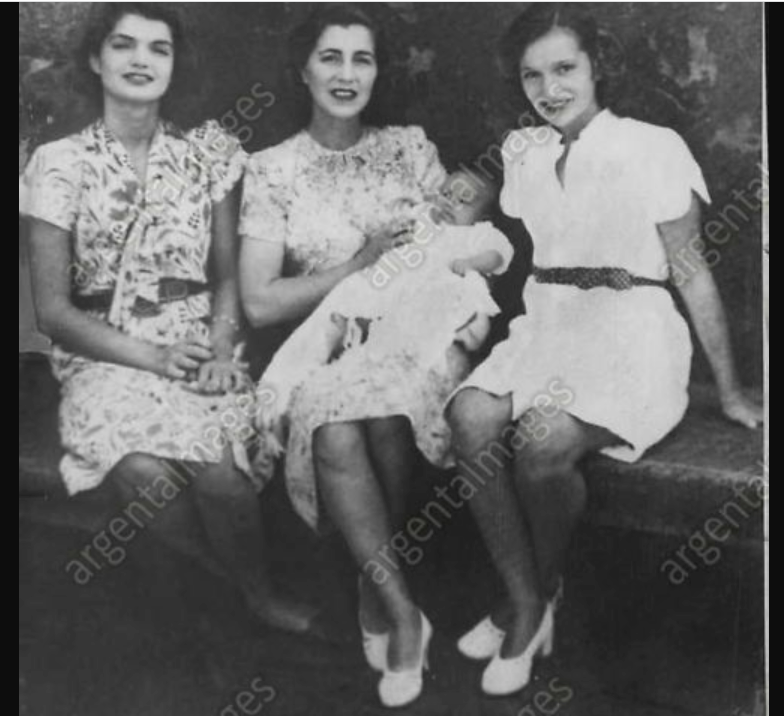
Nina's mother had previously been married to Eugene Luther Vidal, a commercial aviation pioneer, with whom she also had one son, the writer Gore Vidal, making Gore Nina's half brother.
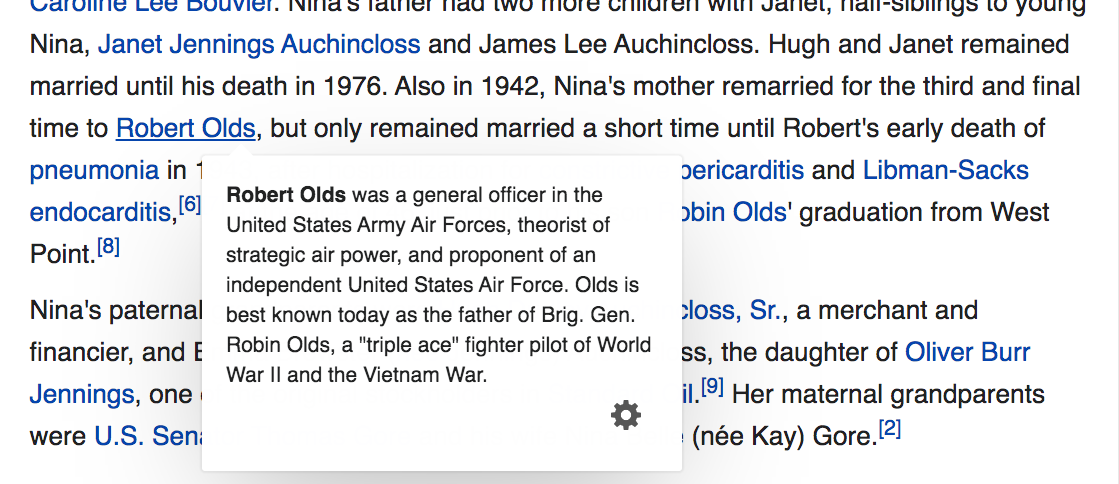
Nina's paternal grandparents were Hugh Dudley Auchincloss, Sr., a merchant and financier, and Emma Brewster (née Jennings) Auchincloss, the daughter of Oliver Burr Jennings, one of the original stockholders in Standard Oil.
In 1957, Nina married Newton Ivan Steers, Jr. (1917–1993), after having briefly dated Ted Kennedy. Jackie Kennedy was her matron of honor at the wedding and then Sen. John F. Kennedy was one of the groomsmen.
From 1963 until 1971, Nina worked as Washington correspondent and bureau chief for the Chattanooga Times, while raising her three sons.
In 1981, her novel Ariabella: The First, was published by Random House. At the time, she was in her second year of evening law school at American University.
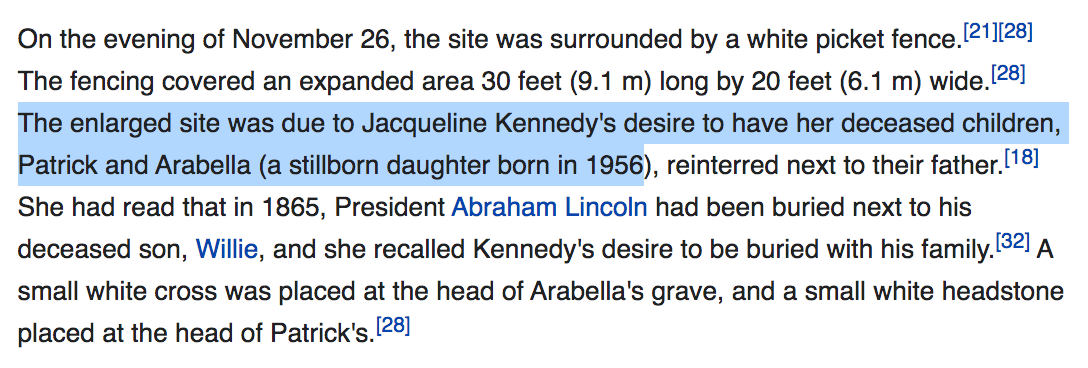
There was another book titled Arabella published
by Georgette Heyer in 1949
To Arabella Tallant, the eldest daughter of a penniless country clergyman, the invitation to stay with her London godmother was like the key to heaven, for in addition to living in the glamorous city, Arabella might even find a suitable husband there. Armed with beauty, virtue and a benevolent godmother, the impetuous but impoverished Arabella embarked on her first London season with her mother's wish in mind: snare a rich husband.
On her way to London Arabella's carriage breaks down outside the hunting lodge of the wealthy and socially prominent Robert Beaumaris, fate cast her in his path. Arabella's only fault is impetuosity, and her pride stung when she overhears a remark of her path of arrogant host, who accused her of being another petty female after his wealth, the proud, headstrong ingenue made a most startling claim -- she was an heiress! A pretense that deeply amuses the jaded Beau. To counter her white lie, Beaumaris launches her into high society and thereby subjects her to all kinds of amorous fortune hunters in London and other embarrassments.
Suddenly Arabella found herself the talk of the ton and pursued by some of the most eligible young men of the day. But only one caught Arabella's fancy: Beaumaris, the handsome and dedicated bachelor. She should know better than to allow herself to be provoked by nonpareil Beau. But would her deceitful charade destroy her one chance for true love...?
Arabella is a sympathetic heroine, naive but also self-aware, and determinedly resistant of the natural inclination to fall head over heels in love with Robert Beaumaris, convinced that he'll only hurt her in the end. Robert finds Arabella refreshing as he gets to know her better, despite - or more accurately, because of - her charitable impulses, which land him with a mongrel dog and worse. It's great fun to watch these two try to come to an understanding in spite of the lie that is still pushing them apart.
Minus a star for a subplot about Arabella's brother getting into some severe gambling trouble, which I thought was predictable and almost painfully embarrassing to read (I skimmed that part on reread), and for Arabella's overdone silliness and naivete at the very end, combined with a dollop of paternalistic attitude from Beaumaris that I'm sure read better back in 1949 when this book was first published. But other than that, Heyer's wit shines in this book, and it's a delicious Regency romp.
Interesting isn't it? How Jacqueline's father had gambling trouble and was a player concerning women?
https://www.goodreads.com/book/show/311150.Arabella
Remember when. . .
In 1940, Kennedy attempted to enter the army's Officer Candidate School. Despite months of training, he was medically disqualified due to his chronic lower back problems. On September 24, 1941,
Kennedy, with the help of then director of the Office of Naval Intelligence (ONI) and the former naval attaché to Joseph Kennedy, Alan Kirk, joined the United States Naval Reserve. He was commissioned an ensign on October 26, 1941, and joined the staff of the Office of Naval Intelligence in Washington, D.C.
In January 1942, Kennedy was assigned to the ONI field office at Headquarters, Sixth Naval District, in Charleston, South Carolina.
The US Special Forces had a special bond with Kennedy. "It was President Kennedy who was responsible for the rebuilding of the Special Forces and giving us back our Green Beret," said Forrest Lindley, a writer for the US military newspaper Stars and Stripes who served with Special Forces in Vietnam.
Kennedy was the first of six presidents to have served in the U.S. Navy, and one of the enduring legacies of his administration was the creation in 1961 of another special forces command, the Navy SEALs, which Kennedy enthusiastically supported.

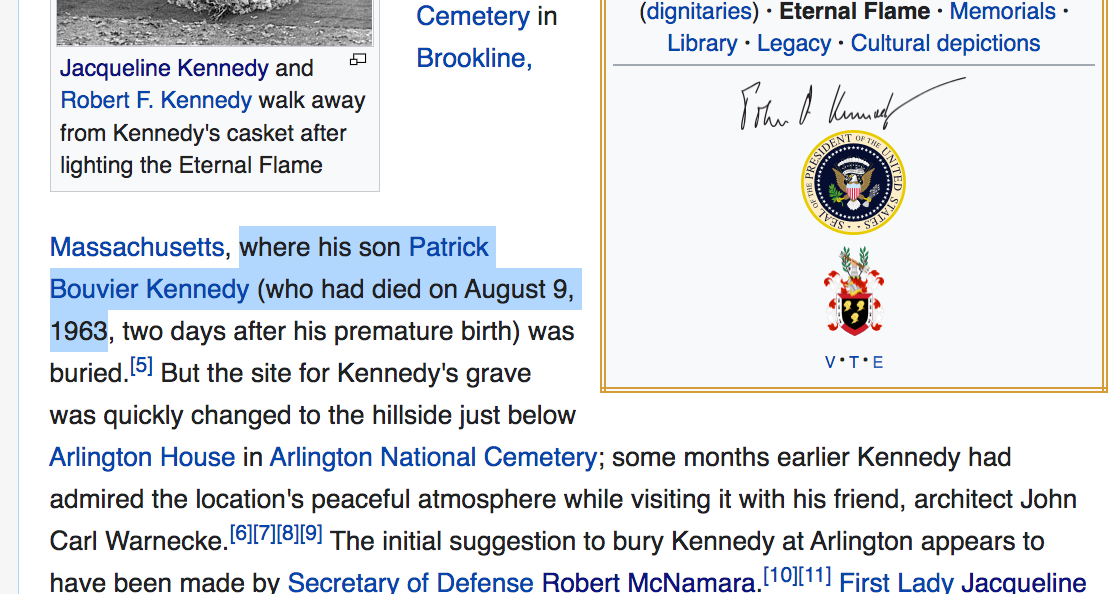
Wedding of Jacqueline Bouvier and John F. Kennedy
Jacqueline Lee Bouvier and John F. Kennedy were married on the morning of September 12, 1953, in St. Mary’s Roman Catholic Church in Newport, Rhode Island. The more than eight hundred guests included many notable individuals.
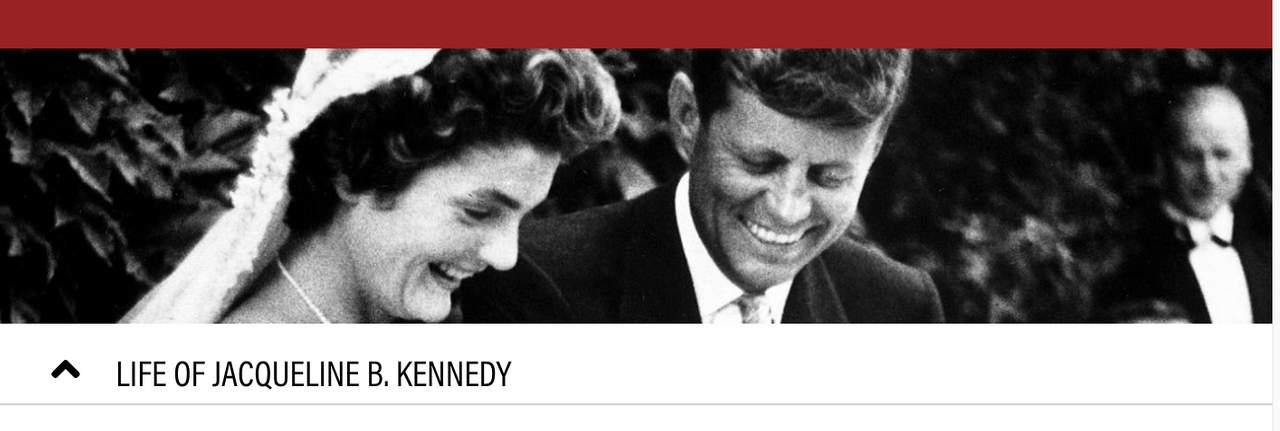
Have a look at how this starts out. Do you find this interesting?
ARIABELLA: THE FIRST
BY NINA A. STRAIGHT ‧ RELEASE DATE: FEB. 1, 1980
Memories of an upper-class, cripplingly limited girlhood and adolescence--shrewdly detailed, often amusing material (circa 1945-1960) which, however, remains thin and episodic despite an effortful attempt to provide it with a portentous novelistic frame. That unsuccessful framework: young Mrs. Susannah Glendenning (nÉe Machem) is taking a train-fide **back to the Rhode Island seaport manse (now a museum) of her childhood; **and on the way she's reading the official report on the recent plane-crash death of her childhood chum, poet Ariabella, examining her own life in the light of this friend's death (""the first"").
A neat, potentially resonant blueprint, perhaps--but in the doing, it's nearly disastrous: unconventional Ariabella, who drifts into the narrative only occasionally, remains far too sketchy to serve as alternative-life prototype; the air-crash mystery registers only as a red herring and an excuse for Sarah's meditations on mortality; and the train-ride/soul-journey premise--which culminates in Susannah's decision to break out of her stifling marriage and pursue a charming stranger--never seems anything but a creaky literary convention.
Still, out of the flashback-within-flashback format there does emerge a series of sharp, ironically vivid vignettes from Susannah's past, a childhood spent largely not with her alcoholic mother out West, but rather at schools and with her blueblood East-Coast aunts. Susannah's first.
Do you remember?
According to My Luscious Life,
Jacqueline Bouvier (1929-1994) and Caroline Lee Bouvier known as “Lee” (1933- ) lived with their parents, “Jack Black” Bouvier and their socialite mother, Janet Norton Lee Bouvier, in apartment 6/7A on the sixth and seventh floors of 740 Park Avenue from 1931 to 1938, until Jackie was seven years old.
Grandparents James and Margaret Lee lived upstairs in apartment 15/16D from 1931 to 1937.
According to author Michael Gross, as the daughter of the builder, Janet Lee Bouvier and her husband Jack Bouvier, attained the final open lease which they did not pay for.
Whilst living here, Jackie attended the exclusive Chapin School in the Upper East Side.
The family lived her until Jack Bouvier’s philandering ways became too much for Janet. They separated in 1936, reunited in 1937, separated again, and then divorced in 1940.
New York District Attorney Francis Garvan and his heiress wife Mabel Brady Garvan lived in apartment 6/7A from 1939-1980 , followed by Rand and Jesse Araskog from 1980-2005.
As far as the aunt, do you remember. . .
Little Edie, Big Edie and a Bouvier family dig that covers Jackie Kennedy's father and stepfather. Some of the suitors of Little Edie, one was Joe Kennedy and another was J. Paul Getty!
Jacqueline Bouvier Kennedy was born in 1929!
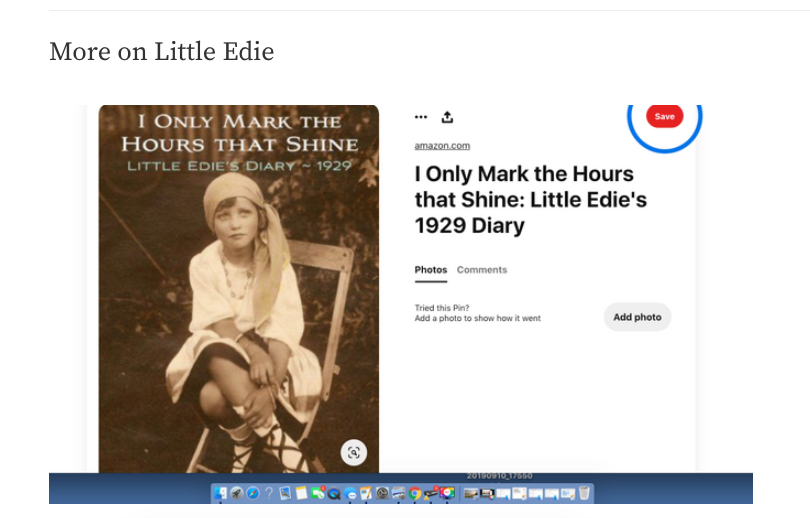
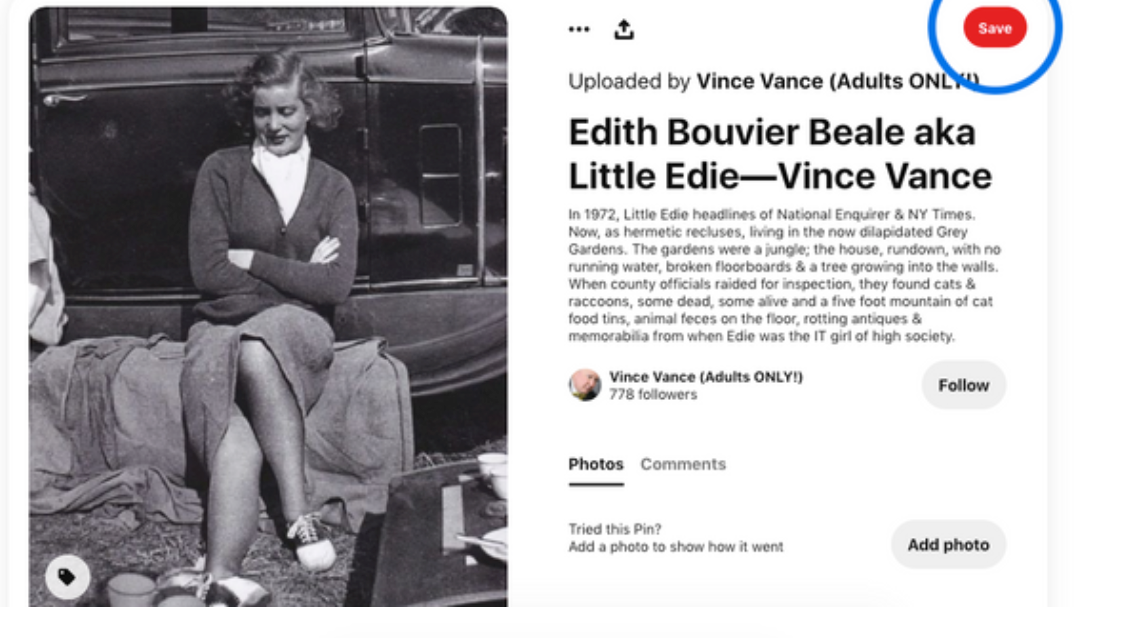
Edie Bouvier Beale
She had a brief fling as a movie star in 1975, when she and her equally outrageous mother were the subjects of a 94‐minute Mayslei brothers documentary film, “Grey Gardens,” which was shown at the New York Film Festival. In it, the two women were shown constantly bickering and romping with their 20 cats in the litter‐strewn mansion, which was raided by Suffolk County health officials in 1971 after annoyed townsfolk complained about its unsanitary, conditions.
“We just didn't have any money to fix it up,” Miss Beale explained. “After the newspaper stories appeared, Jacqueline started sending Mother a small allowance and paying our utility bills. She still does, even though Mother has died. Jacqueline is really a very kind girl, and it almost kills me to take her money.”
Araibella The First continued,
a childhood spent largely not with her alcoholic mother out West, but rather at schools and with her blueblood East-Coast aunts. Susannah's first horse. First kiss. First menstruation (""She felt like a framed bedwetter""). Shopping, surreptitiously and almost flat-chested, for a bra. Miss Farthingale's school--where boys are rated by breeding and looks (Fab, Medium, Icky), where Susannah realizes ""she would rather go naked than not wear a Bonwit label.""
College at Penn Lynne (presumably Bryn Mawr), where well-dressed wallflower Susannah is bizarrely obsessed with being a Gentile among Jews. And nuptials at a very young 19--after a hymenotomy (with seven interns observing) and douche lessons from a cousin--which culminate in a monstrous wedding night with insensitive Jed, who tries to heat up the bride with Henry Miller porn and turns into a satyr-rapist. No wonder, then, that soon-mother-of-two Susannah develops homicidal fantasies (""Don't be so silly.
What color rug are you using for your hallways?"" says her cousin) and winds up on that life-crisis train. But, though there may be a bona fide tale of repression and growth here, Straight never develops it, choosing instead an oblique, contrived approach that insists, ineffectually, on Ariabella's death as a thematic pivot. Result: a shaky, self-conscious piece of fiction, yet one with considerable comic diversion--and some glimpses into the painful consequences of socio-sexual hobbling--along the way.
Found here in this book review
https://www.kirkusreviews.com/book-reviews/a/nina-a-straight/ariabella-the-first/
According to Quahog and what was on the dust jacket of the book,
Ariabella, the First
by N.A. Straight (1981)
Ariabella, the First book cover
A satirical novel set in Newport. From the dust jacket:
Susannah Machem Mortimer Glendenning, still in her early twenties, is taking a tram ride into her past, going back in time to try to discover what happened to the life of her only childhood friend, Ariabella, and at the same time, what has happened to her own life. Her trip leads inevitably to Inchiquin Farm, the vast estate on Narragansett Bay referred to in nineteenth-century society pages as a "summer cottage." Founded in the 1880s by the New York Schermerhorns, the maiden name of Susannah's mother, Inchiquin Farm is now a museum, a relic of a vanished aristocracy.
But in Susannah's childhood, when she spent every summer there, it was the home of her two maternal aunts, Miriam Polk Schermerhorn French Goelet and Ethel Bolton Schermerhorn d'Ambroise Headley, and their children—Warrick French, a writer of Hollywood film scripts and more serious work; Courtlandt d'Ambroise, a success as both writer and Wall Street businessman; and the Younger Goelets—Savannah, Melanie, Giles, and Julien.
A contemporary New York Times book review noted that many believed the novel to be autobiographical, as it seemed to closely mirror author Nina Gore Auchincloss Steers Straight's relationships with her half-brother, Gore Vidal; her step-sister and step-mother, Jacqueline Onassis and Janet Norton Lee Bouvier Auchincloss Morris; and her close college friend Renata Adler (upon whom the title character was suspected to be based). Straight, however, denied any correlation between real life and her novel's characters.
Inchiquin is the name of a real Newport estate, located at the southern end of Cliff Walk, and now broken up into condos. But Inchiquin as described in the novel more closely resembles Hammersmith Farm, where Straight and Onassis spent a good deal of their childhoods.
https://quahog.org/FactsFolklore/Trivia/Limelight/Ariabella_the_First
EXTERIOR 740 Park Avenue Manhattan
The iconic building is located on the Upper East Side of Manhattan, on the corner of Park Avenue and East 71st Street:
LOCATION 740 Park Avenue New York
BACKGROUND: THE LEE FAMILY
The Art Deco residential building was built in 1929-1930 by Jackie and Lee’s grandfather, James T. Lee (1877–1968), a property developer, with architecture by Rosario Candela and Arthur Loomis Harmon.
The site was originally Lee’s private home, and the neighboring George Brewster limestone mansion, and the new building was officially opened in 1931.
The New York Times has an article about James T Lee and his building legacy.
James T Lee property developer and grandfather of Jackie and Caroline Lee BouvierMargaret Merritt Lee, grandmother of Jackie Bouvier Kennedy Onassis and Lee Radziwell
James T Lee and Margaret Merritt Lee
James Thomas Lee married to Margaret A. Merritt (1879–1943) and went on to be the father of Janet Norton Lee Bouvier Auchincloss Morris (1907-1989), Marion Merritt Lee (1909-1991) and Winifred Norton Lee d’Olier (1912-1991).
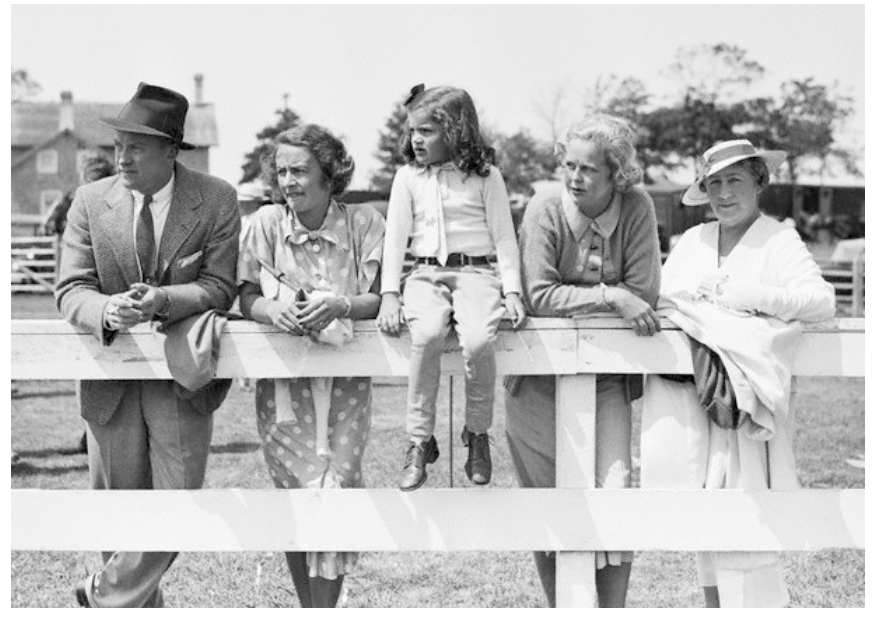
Left to right - Franklin D'Olier, Winifred Lee, Jacqueline Bouvier (late Kennedy Onassis), Marian Raymond and Mrs. James T. Lee at the Southhampton Riding and Hunt Club's seventh annual horse show
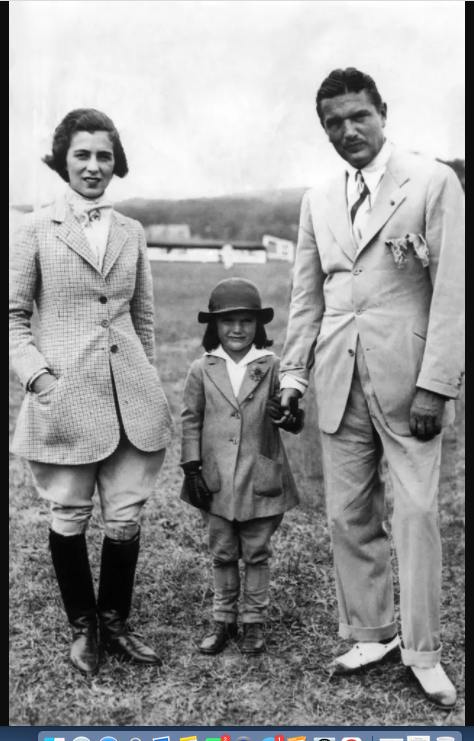
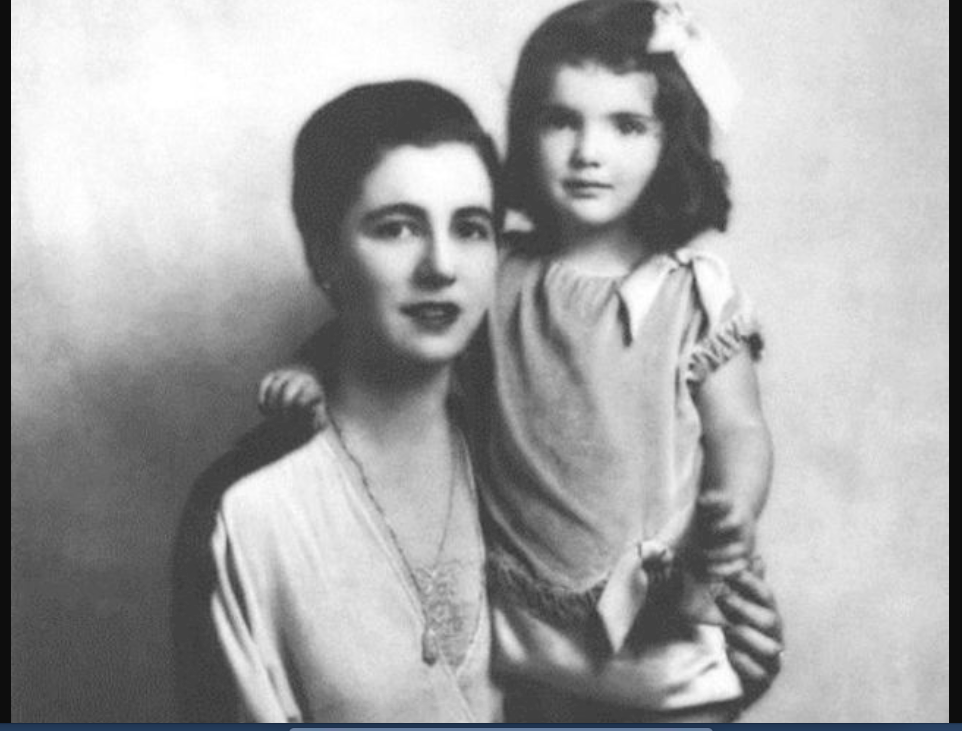
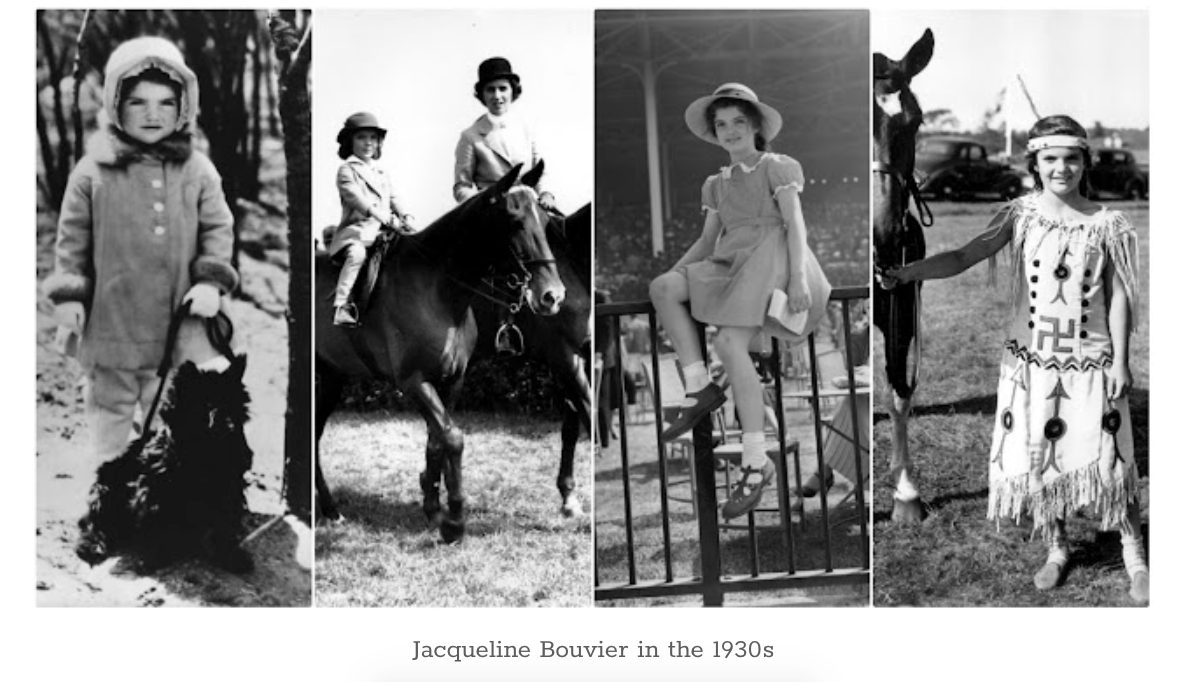

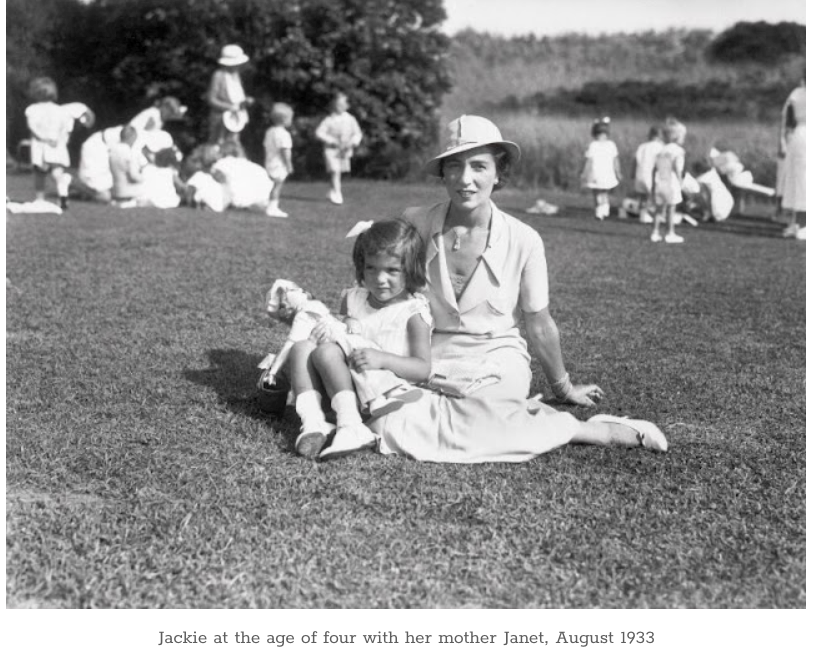
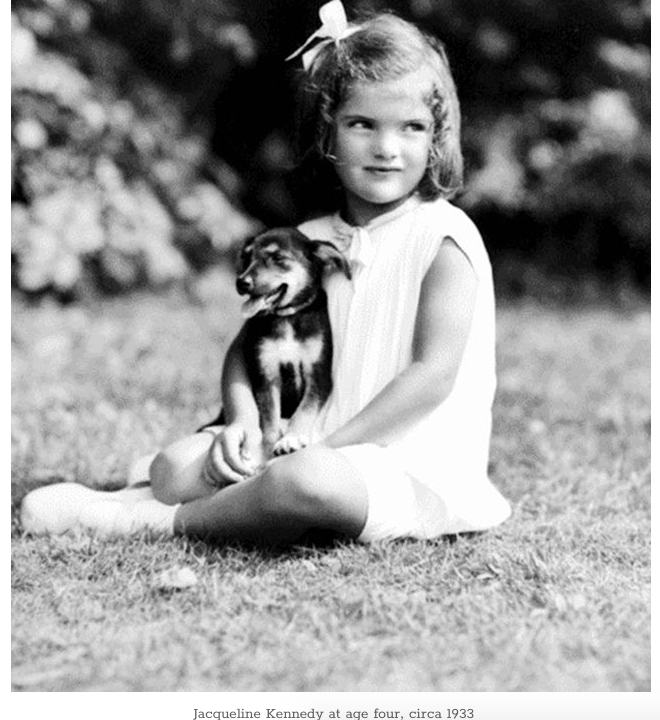
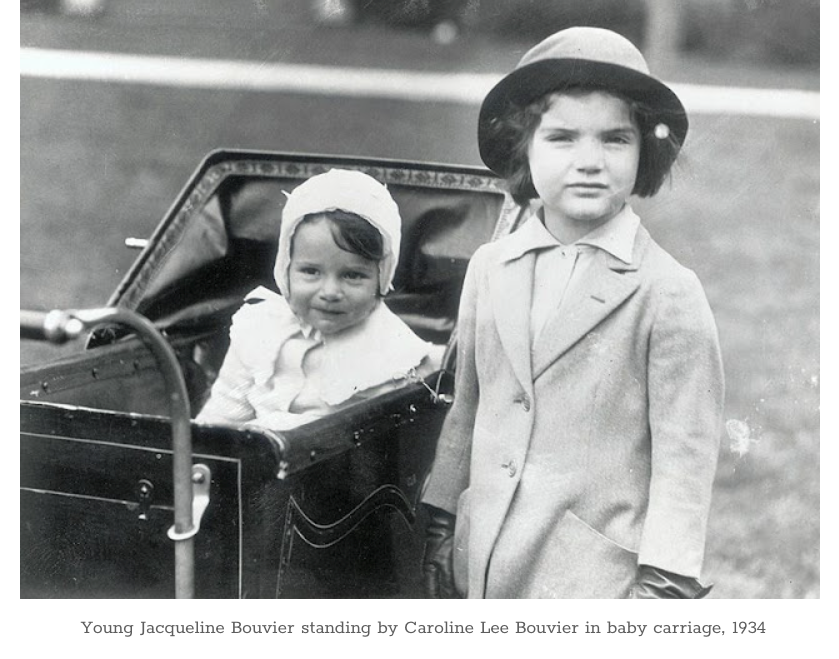
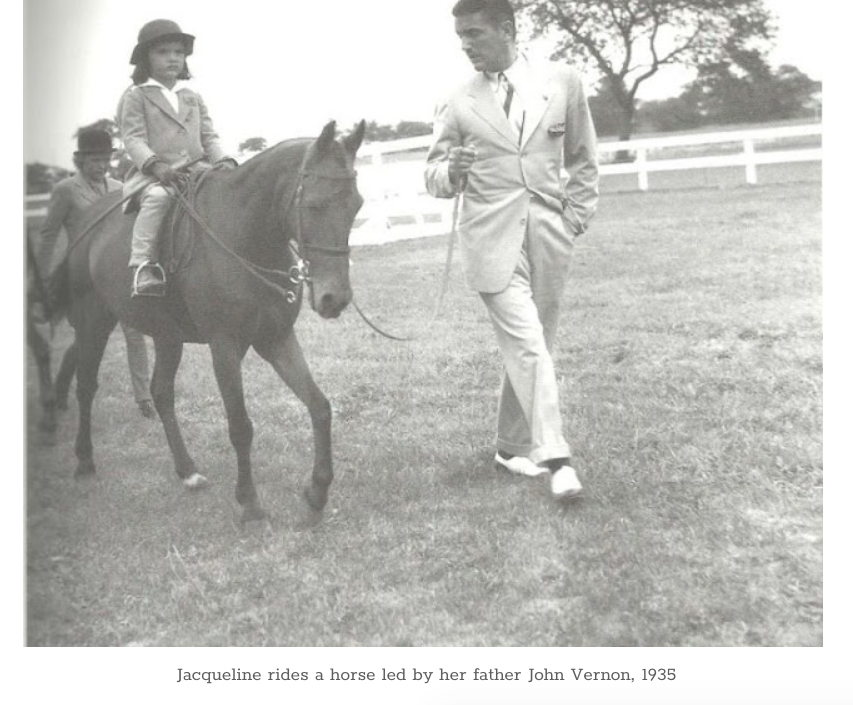
- Janet Lee went on to marry:
John Vernou Bouvier III with whom she had daughters Jacqueline Kennedy Onassis and Caroline Lee Canfield Radziwill Ross
Hugh D. Auchincloss with whom she had two more children, Janet Jennings Auchincloss and James Lee Auchincloss, and three stepchildren Hugh Dudley Auchincloss III, Nina Gore Auchincloss and Thomas Gore Auchincloss
Bingham “Booch” Morris.
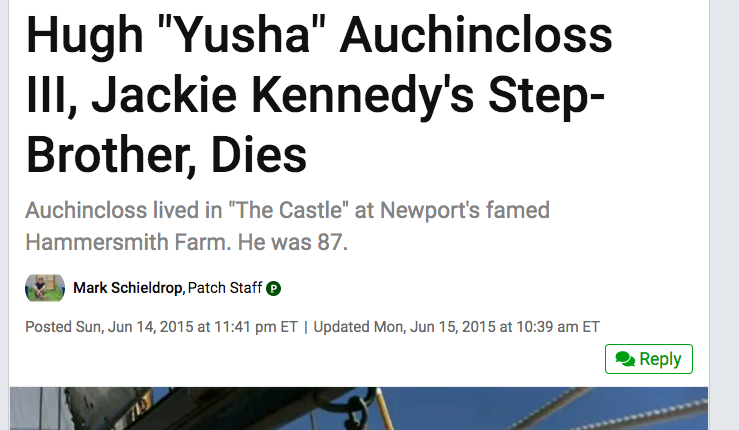
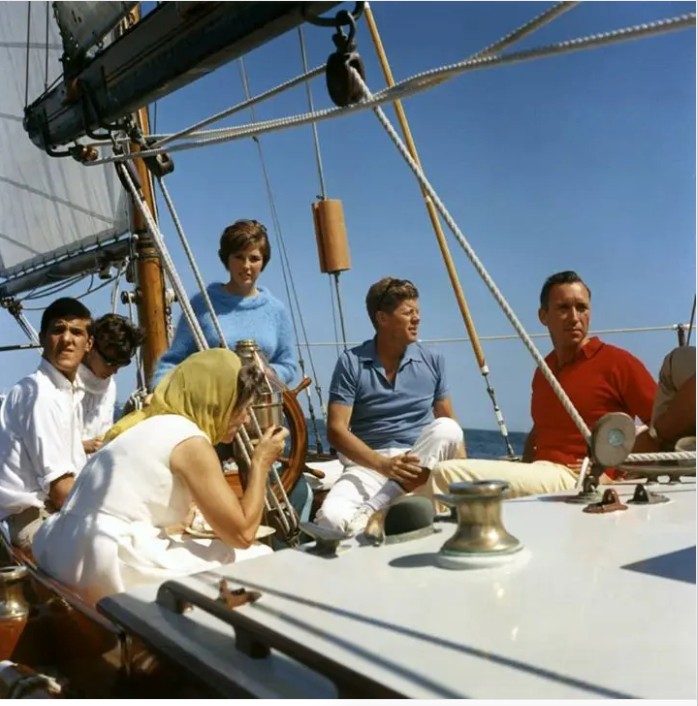
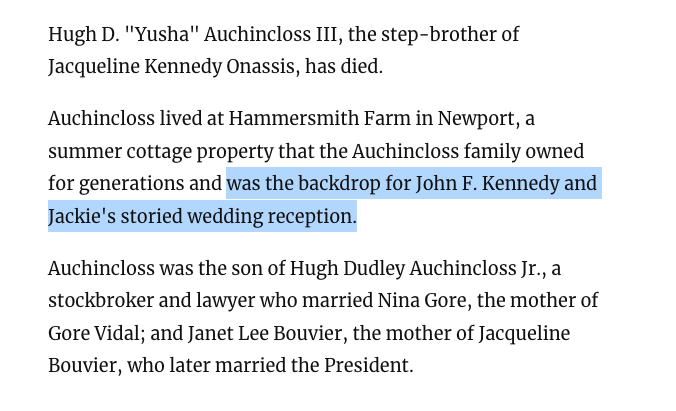
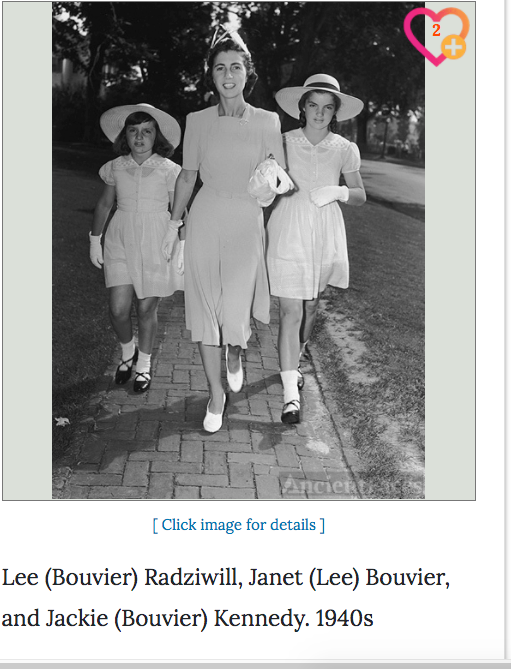
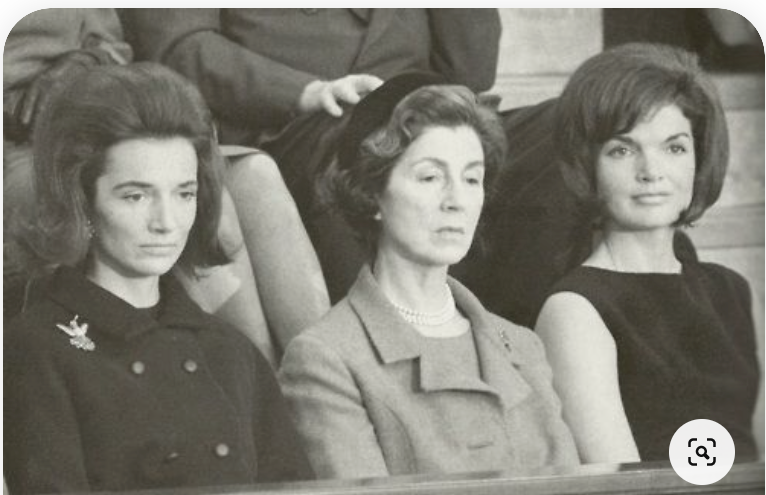
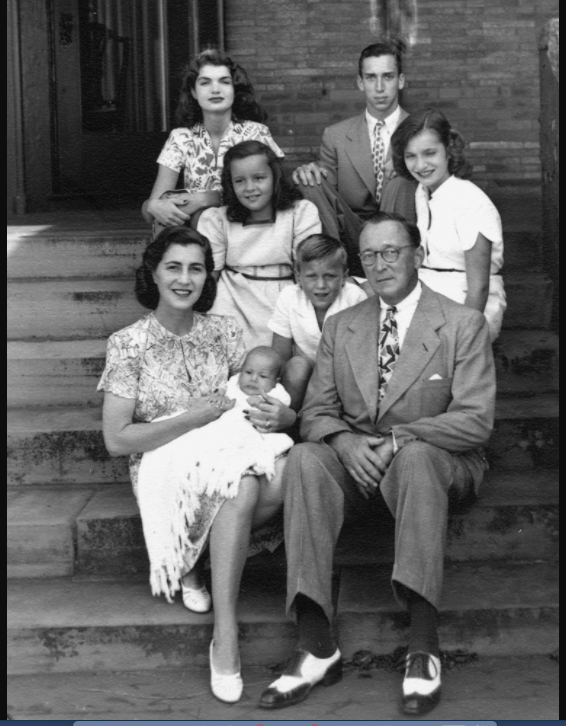
Jacqueline Bouvier with the Auchincloss family
Janet, Jackie and Lee moved to the Auchincloss estate outside of Washington, D.C., along with three Auchincloss step-siblings. Soon there would be a half-brother and a half-sister. Jackie attended the Holton-Arms School for two years.
Black Jack was responsible for supporting Jackie and her younger sister Lee. He could barely afford tuition and their $50 a month allowance, a pittance compared to the entitlements of the Auchincloss children. Jackie was a poor relation though she attended exclusive schools, traveled in elite social circles and lived on large estates.
In the world Jacqueline Bouvier grew up in, there was only one desirable path in life: to marry a rich, socially prominent young man.
She prepared for that future in the autumn of 1942,when she went off to Miss Porter’s in Farmington, Conn.
MISS PORTER’S
At Miss Porter’s, she studied hard, rode her horse and dated boys, in that order. Perhaps she was ambivalent about the stultifying life of a society wife that her mother planned for her. But she believed she needed a rich husband, and she wasn’t sure she’d get one.
“I just know that no one will ever marry me, and I’ll end up as a housemother at Farmington!” she complained to a friend.
She once said she spent three years at Miss Porter’s imitating girls who had callers every Saturday.
I passed the finish line when I learned to smoke in the balcony of the Normandie Theater in New York from a girl who pressed a Longfellow on me then led me from the theater when the usher told her that other people could not hear the film with so much coughing going on.
Jacqueline Bouvier was shy and reserved — some would say inscrutable — but she had an uncanny ability to draw attention to herself. She formally entered the marriage market at an afternoon tea dance for 300 of Janet and Hugh’s friends and their eligible offspring at Hammersmith Farm in Newport, R.I. Later, her mother threw an evening event for her; and then came a whirl of dances, dinners, parties and special breakfasts after late-night partying. A New York columnist named her Deb of the year. But no husband.
She spent the summer on a grand tour of Europe, and returned as single as ever.
“I didn’t know what I wanted,” she said. “I was still floundering.”
At her father’s urging she entered Vassar College in the fall of 1947, where again she excelled at academics. She wasn’t in love with the school, once calling it, ‘that damned Vassar.’ She spent her junior year abroad at the University of Grenoble in France and refused to go back to Vassar. She decided to finish her degree at George Washington University in Washington, D.C., while living at Merrywood.
She was 21 and unmarried at a time when most young society women were already married. Worse, her younger sister Lee – also Debutante of the Year – had found a husband.
In October she won the Prix de Paris from Vogue magazine with her essay defending the three historical figures she most wanted to meet were Charles Baudelaire, Oscar Wilde and Sergei Diaghelev. The prize was a six-month Vogue junior editorship in New York and six months in Paris. On her first day at work, the managing editor took her out to lunch. Jackie asked her what city would be best for her.
The editor, Carol Phillips, replied, “Go to Washington. That’s where all the boys are.”
Jacqueline Bouvier quit that day.
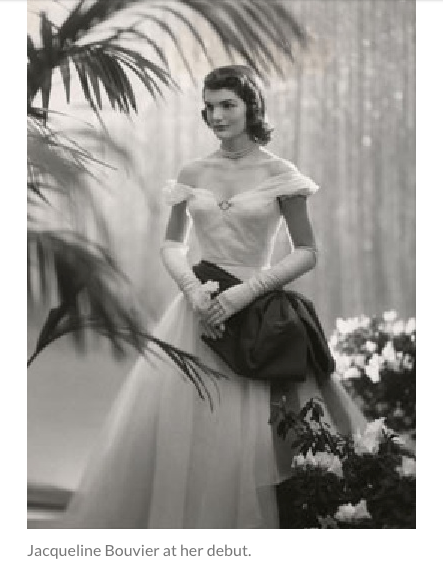

Auchincloss was 14 when his father married Bouvier and he and 12-year-old Jackie became close friends as they spent summers together at Hammersmith Farm.
The two corresponded throughout their lives up until Jackie's death in 1994.
Auchincloss attended Groton School in Groton, Mass., before he joined the United States Marine Corps when he graduated in 1945.
In 1947, he entered Yale University and in the 1950s, completed two tours of duty in Korea and studied at the American University of Beirut.
Later, Auchincloss served with the U.S. delegation to the United Nations and published a book on his early life growing up alongside Jackie, "Growing up with Jackie: My Memories, 1941-1953."
Hammersmith was purchased by John W. Auchincloss in 1887. It was the backdrop for as royal-seeming as any moment in American history when Jackie and JFK held their wedding reception there and it was promptly featured on the front page of the New York Times the following day.
The "Summer White House" is a 28-room mansion on the nearly 100-acre property, but Hammersmith is known as much for its outbuildings as the famous families that have lived there.
After Auchincloss' father died, the mansion was sold to Fruit of the Loom owner William F. Farly, who turned it into a museum. In 2000, a philanthropist and Goldman Sachs executive bought it and converted it into into his private residence.
The Auchincloss family continued to own the outbuildings, known as "The Palace," the "The Windmill" and "The Castle."
The windmill was actually designed by Jackie. Auchincloss, in 2002, told Washington Life that his father "asked all the children to make a sketch, and Jackie's was the best."
Providence architect Tillinghast built the windmill based on her design. The four-story, 100-foot structure has an elevator, quarters for six people and offers jaw-dropping views of Narragansett Bay.
In 2013, Auchincloss told the Providence Journal's G. Wayne Miller that during his toast at the reception, he told JFK that if it weren't for Jackie, he wouldn't be President.
"First, Mr. President, I want to congratulate you," he said. "You've been a very good President. I'm glad you had your wedding here in Newport. I'm glad you're celebrating your wedding anniversary here with Jackie.
"But I have to remind you: if you hadn't gotten engaged to Jackie, my stepsister, neither one of you would have been in the White House. And I wouldn't have had a chance to stay in the White House. So I have to thank you for that!"
Services will be announced at a later date.
Auchincloss married Alice Lyon in 1958 and they had two children, twins Cecil and Maya Auchincloss, in 1959. Their marriage ended in divorce. Lyon died in 2003.
Photo: President Kennedy goes sailing while he vacations at Hammersmith Farm. L-R: Mrs. Hugh D. Auchincloss, John Forbes Kerry, Nina Auchincloss, Janet Auchincloss (at wheel), President Kennedy, Hugh "Yusha" Auchincloss. Aboard the USCG yacht "Manitou" on Narragansett Bay, Rhode Island. Credit: Robert Knudsen, White House / John Fitzgerald Kennedy Library, Boston.

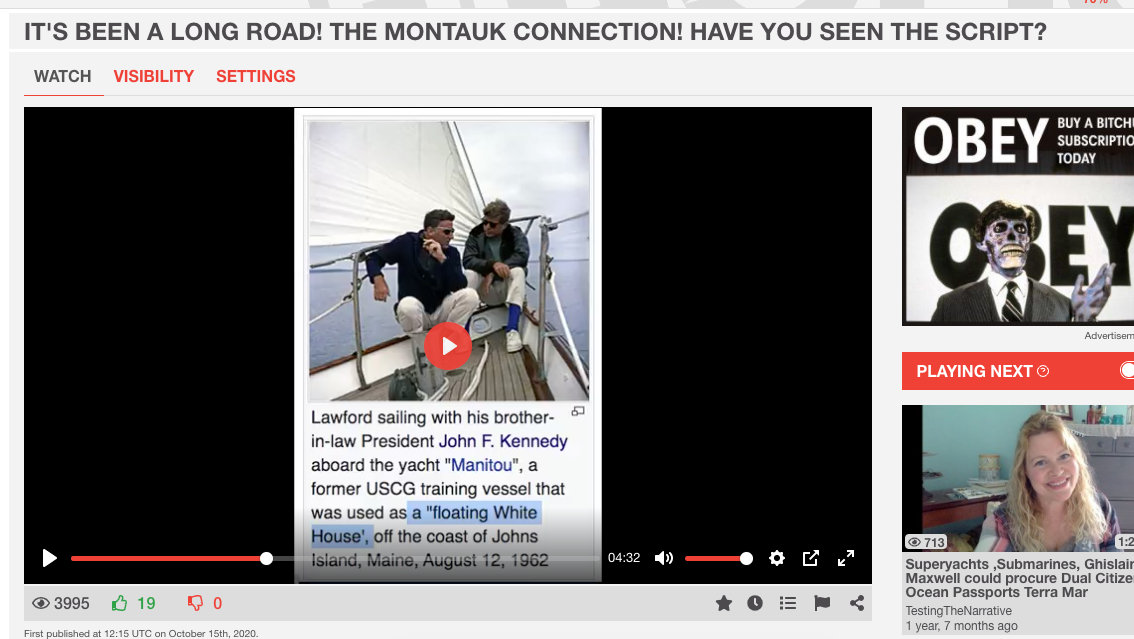
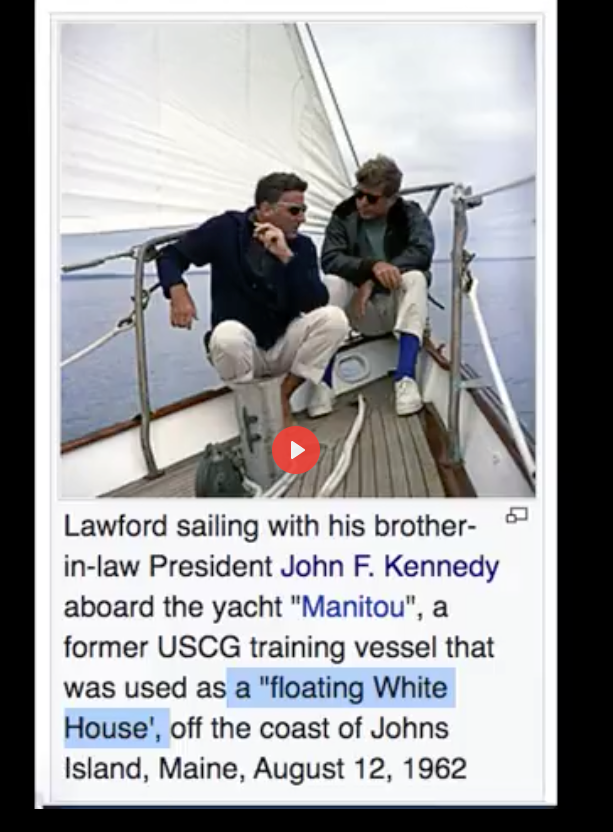
See more information on how much connects in here in under 13min.
IT'S BEEN A LONG ROAD! THE MONTAUK CONNECTION! HAVE YOU SEEN THE SCRIPT?
I know Jacqueline worked for Viking Publishing, this is important for another connection.
Inga Marie Arvad Petersen was married to In 1947, Fejos both stopped making films and travelling to become Director of Research and acting head of the Viking Fund.
Arvad was a journalist from Denmark, investigated by the FBI in the early 1940s due to rumors that she was a Nazi spy; there were photographs of Arvad as a guest of Adolf Hitler at the 1936 Olympics, and she had twice interviewed him. This investigation included the wiretapping of Arvad during the time of an affair with John F. Kennedy in late 1941 into 1942. No evidence against Arvad was ever found.
Kennedy and Arvad knew they were being followed, and in the FBI transcripts of their encounters they sometimes spoke to "whoever is listening".[citation needed] Arvad later reflected on her time with Kennedy as a "passing affair"
Her 2nd husband Paul, arrived in New York City penniless and spoke little English, but managed to get several low paying jobs at funeral parlors or piano factories. By the spring of 1924 his English had improved and he managed to get a job as a laboratory technician at the Rockefeller Institute for Medical Research. He earned $80 a week and was employed there for two years.
The Last Moment was released in 1928 and received rave reviews and was a financial hit. Charlie Chaplin praised it and writer Tamar Lane called it "one of the most remarkable films that has ever been presented on the screen." With the film's success and Fejos's overnight celebrity status, major studios were suddenly competing for the former vagrant to sign contracts with them. Fejos settled with Universal Studios because its contract offered him complete artistic control.
In 1932 Fejos returned to Hungary to direct Spring Shower (Tavaszi Zápor), which some film critics have called his best film. The film stars Annabella as a young girl who is seduced and abandoned, has a child, and dies in poverty only to have to scrub floors in Heaven. While in Heaven, she sees that her now-teenage daughter is about to make the same mistake that she made and dumps her wash bucket to cause a rain storm and prevent it.
Fejos fell in love with Annabella and supposedly flew over her train back to France in a small plane and showered it with roses. Fejos's friend John W. Dodds has stated that "every time [Fejos] moved to another country, it was because of an ending love affair"
By 1935 Fejos had grown tired of narrative films and their inauthentic sets and stories. That year he was sent by Nordisk Film to scout filming locations in Madagascar and loved the country so much that he ended up staying for nine months. He filmed over 30,000 feet of footage of animals, plants, tribal societies and local customs, all of which was unusable for a narrative feature. He also collected many artifacts and eventually donated them to the Royal Danish Geographical Society. When he returned to Denmark the unusable footage that he had shot was brought to the attention Svensk Filmindustri's Gunnar Skoglund [sv] who commissioned a series of six short documentaries to be made from the footage. These films included Black Horizons (Svarta Horisonter), The Dancers of Esira, Beauty Salon in the Jungle, The Most Useful Tree in the World, Sea Devil, and The Graves of our Father, all released between 1935 and 1936. In 1936, he married Inga Arvad, a Danish journalist.
Arvad had appeared in Flight of the millions and the two remained married until 1942.
Inspired by his newfound passion for cultures and history, Fejos studied cultural anthropology at the Museum of Copenhagen in 1936 and studied under Dr. Thompson. He was then commissioned by Svensk Filmindustri to make a series of ethnographic films in such countries as Indonesia, the Philippines, New Guinea, Ceylon and Thailand from 1937 to 1938. These films included A Handful of Rice (En Handfull Ris), Man and Woman (Man och Kvinna), The Tribe Still Lives (Stammen lever än), The Bamboo Age of Mentawei (Bambuåldern på Mentawei), The Chief's Son is Dead (Hövdingens son är död), The Komodo Dragon (Draken på Komodo) and The Village Near Pleasant Fountain (Byn vid den trivsamma brunnen).
In 1938 while returning from filming in Thailand Fejos met Swedish industrialist Axel Wenner-Gren, who would change Fejos' life in the same way that Edward Spitz had ten years earlier. The two men became fast friends and Wenner-Gren agreed to finance an expedition to Peru in late 1939. While in Cusco Fejos was told by a Franciscan friar about a legendary lost city somewhere in the jungle. He immediately contacted Wenner-Gren, who agreed to give additional financing for the expedition. Fejos discovered 18 ancient Incan cities and traveled to the headwaters of the Amazon river. In total, he spent a year in Peru studying the culture and filming the Yagua tribe. His research resulted in Fejos' final series of films Yagua, released in 1940 and 1941. It also resulted in the publication of Ethnology of the Yagua, published by the Viking Fund Series of Publications in Anthropology in 1943.
https://anthrosource.onlinelibrary.wiley.com/doi/10.1525/aa.1947.49.3.02a00250
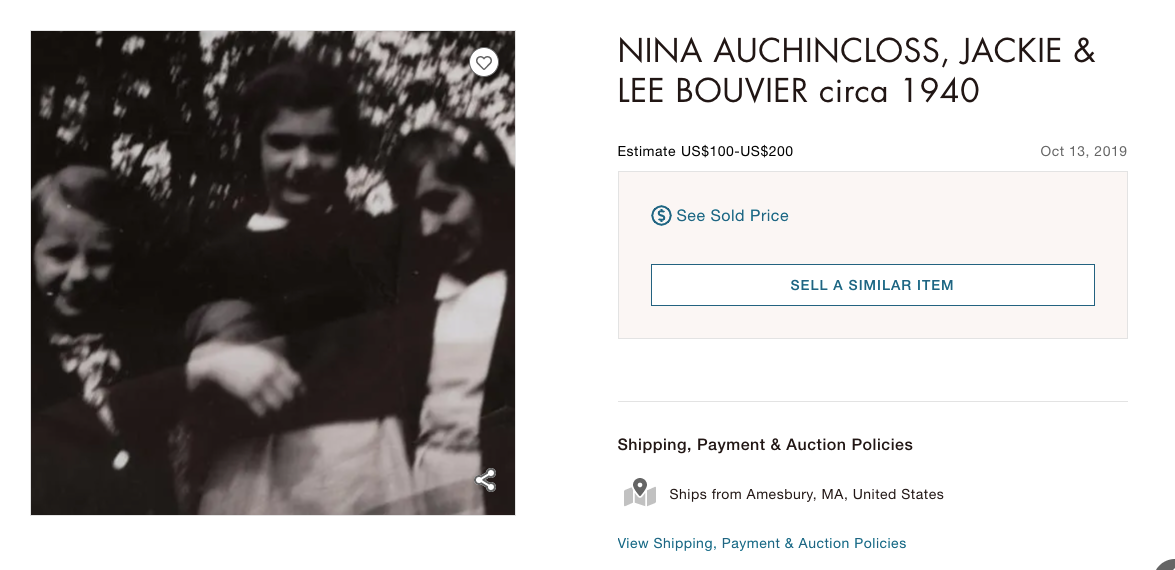
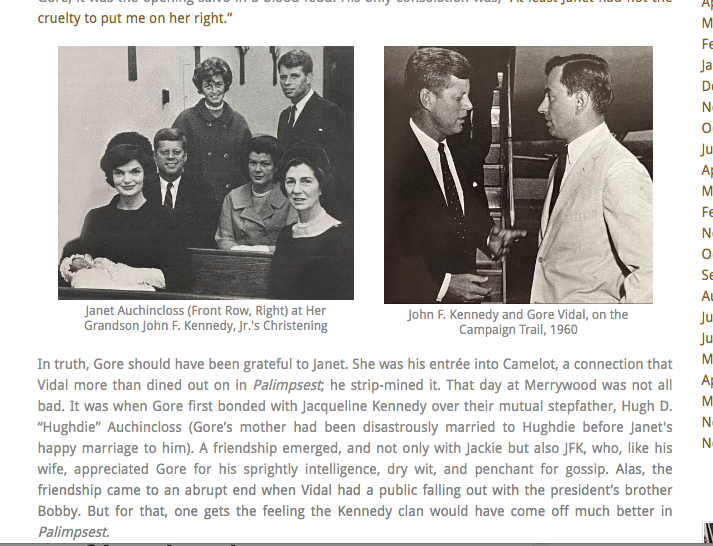
According to Nick Harville Libraries,
It is likely that the famously prickly author projected his own feelings onto JFK’s. Janet Auchincloss had been on Vidal’s enemies list since 1956 when she sat him—age thirty and a celebrated novelist and playwright—at the children’s table for a family dinner at the Auchincloss’s suburban Washington D.C. home, Merrywood. Janet’s biographer classified the seating arrangement as playful, but for Gore, it was the opening salvo in a blood feud. His only consolation was, “At least Janet had not the cruelty to put me on her right.”
In truth, Gore should have been grateful to Janet. She was his entrée into Camelot, a connection that Vidal more than dined out on in Palimpsest; he strip-mined it. That day at Merrywood was not all bad. It was when Gore first bonded with Jacqueline Kennedy over their mutual stepfather, Hugh D. “Hughdie” Auchincloss (Gore’s mother had been disastrously married to Hughdie before Janet's happy marriage to him). A friendship emerged, and not only with Jackie but also JFK, who, like his wife, appreciated Gore for his sprightly intelligence, dry wit, and penchant for gossip. Alas, the friendship came to an abrupt end when Vidal had a public falling out with the president’s brother Bobby.
As to Gore’s allegations regarding Janet and her son-in-law JFK, yes, there was tension early on, mostly due to JFK’s philandering.
Matters came to a head in 1956 when Jackie gave birth to a stillborn daughter, Arabella.
Jackie was devastated, but Jack, cavorting in Europe, did not see the need to return home, explaining it would not bring the baby back. An infuriated Janet got Bobby Kennedy on the phone and complained, insisting he summon his brother back immediately. In the heat of the moment, Janet thought JFK worse than even her despised first husband, “Black Jack” Bouvier, who at least had the decency to be present at the birth of Jackie and her sister Lee. It was only reluctantly that Janet (out of practical concerns) counseled Jackie against ending the marriage.
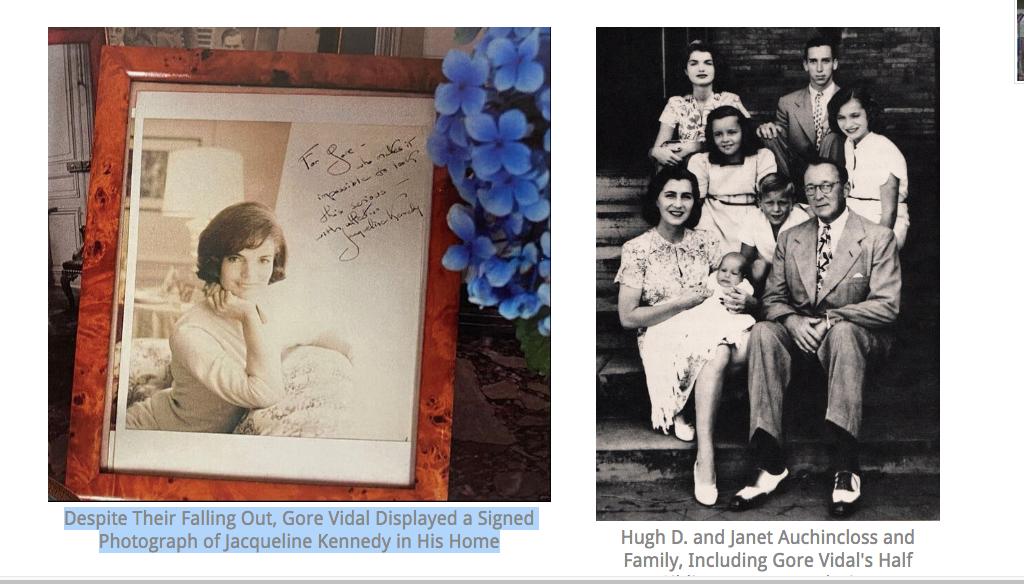
Relationships are not static, however, and things between Jack and his mother-in-law had improved by the time he occupied the White House. In fact, Janet had come to admire her presidential son-in-law. He seemed to reciprocate. No longer was she Mrs. Auchincloss, as she had been in the early years of the marriage. Jack now called her Mummy.
Moreover, it was not the Kennedy compound in Hyannis, with all of those rambunctious cousins, where the president preferred to spend summer weekends. It was Hammersmith Farm, Hughdie and Janet’s Newport, Rhode Island summer residence. JFK called it “the most beautiful spot in the world” and arranged to rent the estate next door for the summer of 1964. That did not come to pass due to his assassination, but still, it is unlikely the president would have planned to spend his summer next door to a mother-in-law he regarded as the moral equivalent of Nikita Khrushchev.
It was not just on vacation when JFK associated with his mother-in-law. Back in Washington, D.C., she was most definitely persona grata at the White House. Janet, with her boundless energy, often pitched in during the White House years, acting as hostess for the mundane tasks required of a first lady for which Jackie had no patience. Janet was also a guest at the more glamorous White House events. Recalled Jacqueline Kennedy's social secretary Letitia Baldridge, “No matter how tightly [we] squeezed the guest list, Jackie always left room for the [Auchinclosses] at her most anticipated parties.”
JFK also seems to have appreciated the (unintentional) comedic side of his mother-in-law. Once, at the dinner table, Jackie corrected something Jack said, appalling Janet. Turning to her daughter, she commanded, “‘Jackie, how dare you criticize the President? You need to apologize to him.’” Jack, highly amused, chimed in, ‘Yes, Jackie, how dare you correct me? I am the President!’”
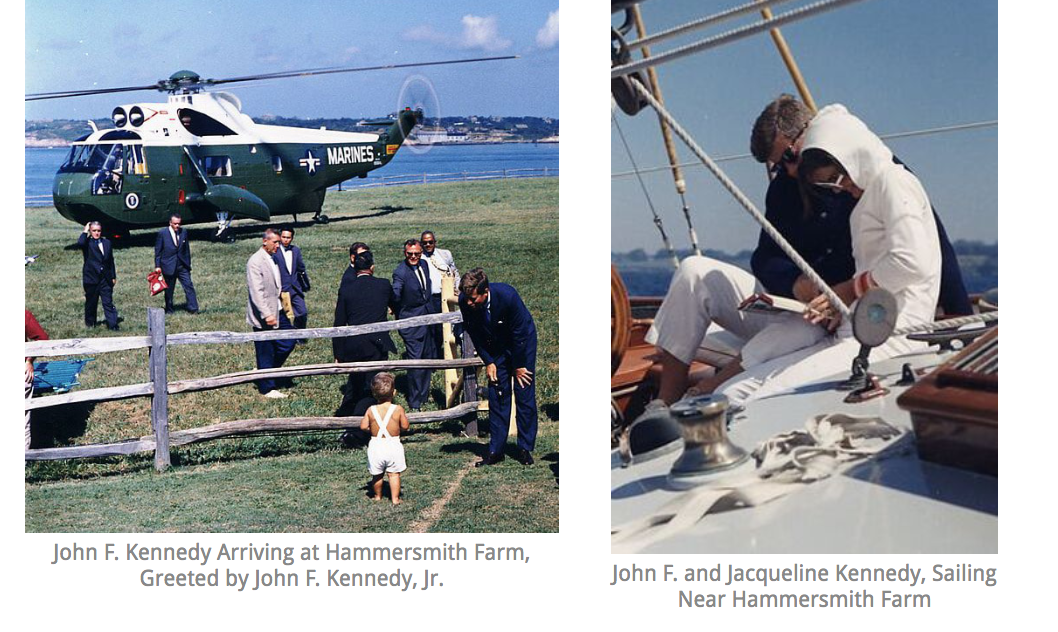
At Janet’s core was a sense of duty and a kind heart. Animals loved her and she them (always a good sign). Gore should taken note of his half-sister Nina Auchincloss Straight's high regard for Janet (her stepmother):
"I was separated from my [alcoholic] mother and raised by [Janet]. She is my family. She was all for everybody getting out there trying, working. I was with her from the fourth grade. She raised me; she is my family."
https://www.nickharvilllibraries.com/blog/a-quiz-malice-in-camelot-edition

As per Book Fever,
NY: Random House, (1981.) dj. Hardcover first edition - A young woman returns to her family's former vast estate on Naragansett Bay in attempt to find out what happened to Ariabella, her childhood friend. The author's first novel: the 'A.' in her name is for 'Auchincloss' and so she is familiar with the world of this novel, a world where the sprawling mansions were referred to in the society pages as 'summer cottages.'.
By Kirkus reviews,
ARIABELLA: THE FIRST
BY NINA A. STRAIGHT ‧ RELEASE DATE: FEB. 1, 1980
Memories of an upper-class, cripplingly limited girlhood and adolescence--shrewdly detailed, often amusing material (circa 1945-1960) which, however, remains thin and episodic despite an effortful attempt to provide it with a portentous novelistic frame.
That unsuccessful framework: young Mrs. Susannah Glendenning (nÉe Machem) is taking a train-fide back to the Rhode Island seaport manse (now a museum) of her childhood; and on the way she's reading the official report on the recent plane-crash death of her childhood chum, poet Ariabella, examining her own life in the light of this friend's death (""the first"").
A neat, potentially resonant blueprint, perhaps--but in the doing, it's nearly disastrous: unconventional Ariabella, who drifts into the narrative only occasionally, remains far too sketchy to serve as alternative-life prototype; the air-crash mystery registers only as a red herring and an excuse for Sarah's meditations on mortality; and the train-ride/soul-journey premise--which culminates in Susannah's decision to break out of her stifling marriage and pursue a charming stranger--never seems anything but a creaky literary convention.
Still, out of the flashback-within-flashback format there does emerge a series of sharp, ironically vivid vignettes from Susannah's past, a childhood spent largely not with her alcoholic mother out West, but rather at schools and with her blueblood East-Coast aunts.
Susannah's first horse. First kiss. First menstruation (""She felt like a framed bedwetter""). Shopping, surreptitiously and almost flat-chested, for a bra.
Miss Farthingale's school--where boys are rated by breeding and looks (Fab, Medium, Icky), where Susannah realizes ""she would rather go naked than not wear a Bonwit label.""
College at Penn Lynne (presumably Bryn Mawr), where well-dressed wallflower Susannah is bizarrely obsessed with being a Gentile among Jews.
And nuptials at a very young 19--after a hymenotomy (with seven interns observing) and douche lessons from a cousin--which culminate in a monstrous wedding night with insensitive Jed, who tries to heat up the bride with Henry Miller porn and turns into a satyr-rapist.
No wonder, then, that soon-mother-of-two Susannah develops homicidal fantasies (""Don't be so silly. What color rug are you using for your hallways?"" says her cousin) and winds up on that life-crisis train. But, though there may be a bona fide tale of repression and growth here, Straight never develops it, choosing instead an oblique, contrived approach that insists, ineffectually, on Ariabella's death as a thematic pivot. Result: a shaky, self-conscious piece of fiction, yet one with considerable comic diversion--and some glimpses into the painful consequences of socio-sexual hobbling--along the way.
Do you see any parallels here in what some of these women of that time had to endure?
https://www.kirkusreviews.com/book-reviews/a/nina-a-straight/ariabella-the-first/
The blueblood East-Coast aunts reference is interesting considering. . .
Jacqueline Kennedy's high society Aunt and Cousin, who became famous for Grey Gardens. . .it became a cult classic, but these two ladies lived out a rise and fall of high society.
See more of their story in this deep dive I did a few years back,
JFKjr, sister and cousins trip with mother and aunt to Montauk Island. They hung out with Andy Warhol, Morrissey, Jed Johnson Jonas Mekas and others known to hang out there. Shooting horror movies with John Beard.What was known to be at Plum Island?
More inside of this one,
Little Edie, Big Edie and a Bouvier family dig that covers Jackie Kennedy's father and stepfather. Some of the suitors of Little Edie, one was Joe Kennedy and another was J. Paul Getty!
Little Edie made an interesting reference to time when Lee Radziwill, Janet's sister was helping with filming and documenting while Jacqueline, JFKjr., sister and cousins were on a summer vacation to Andy Warhol's compound called Eothen, which stands for First Light!
Check it out inside of here,
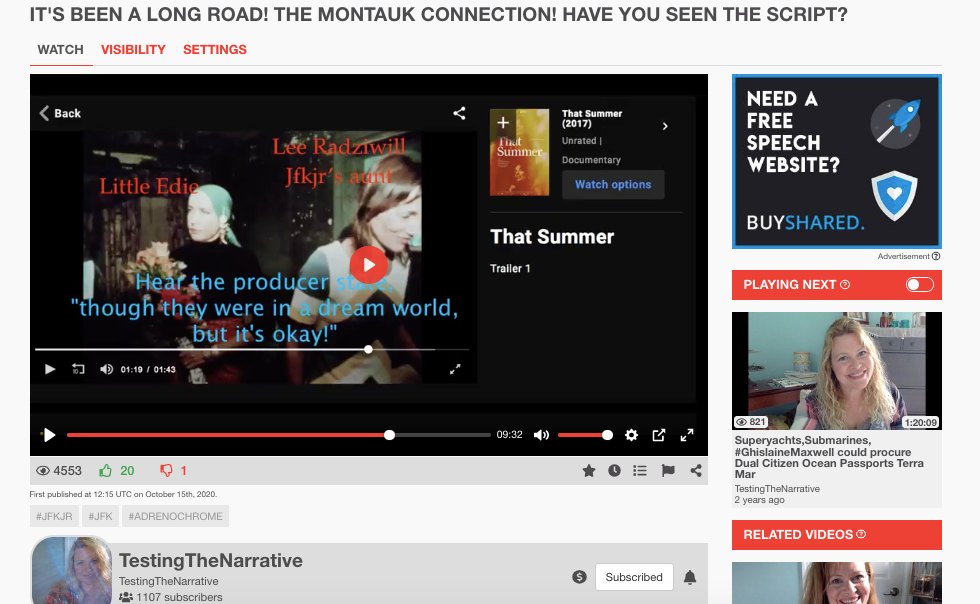
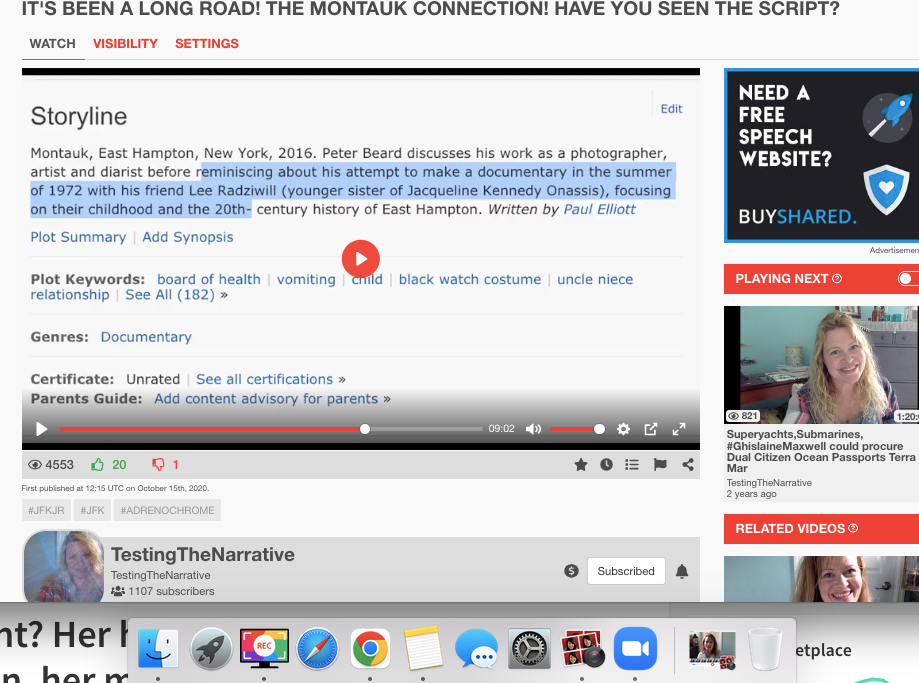
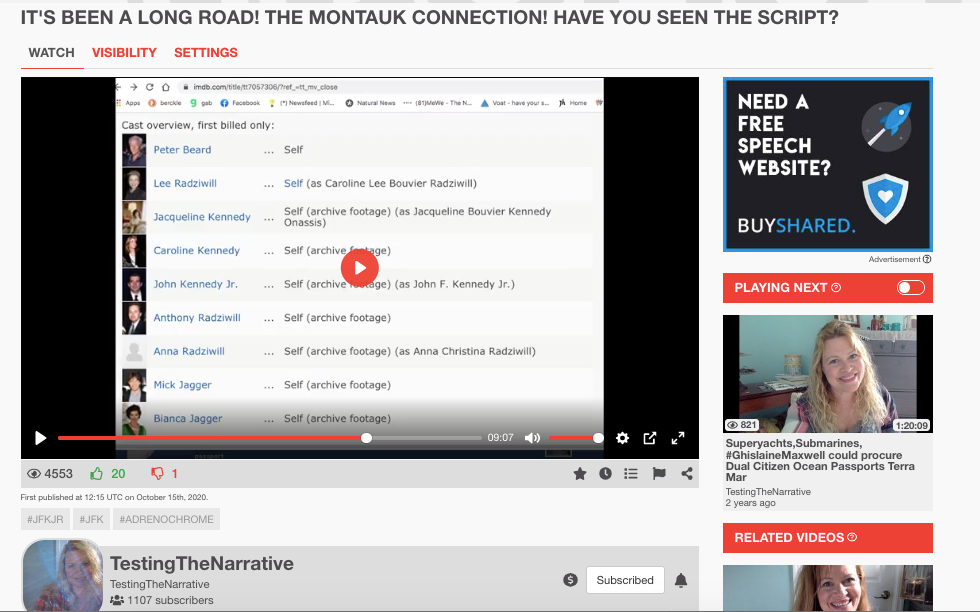
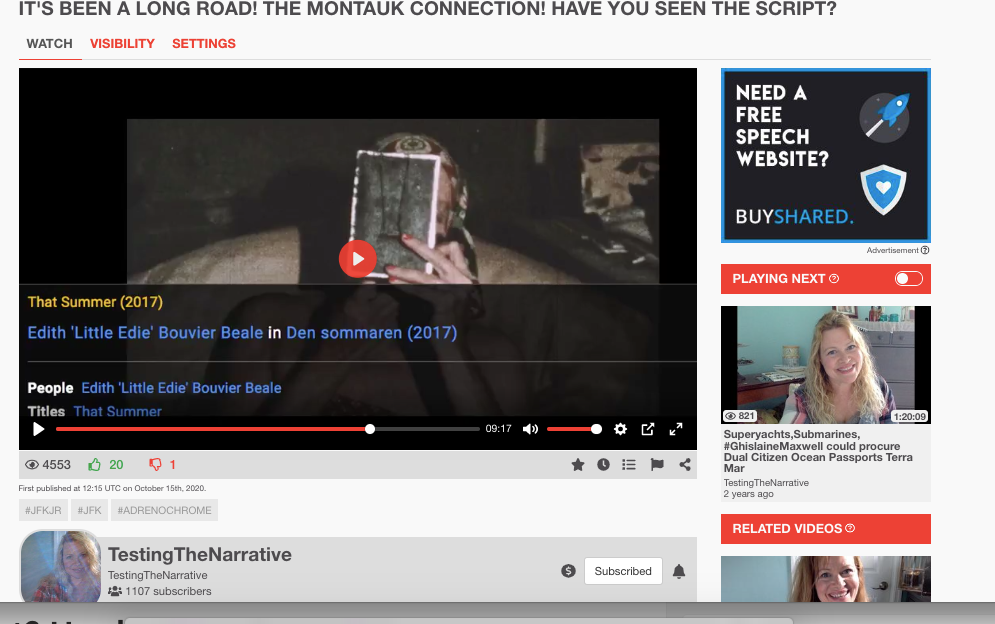
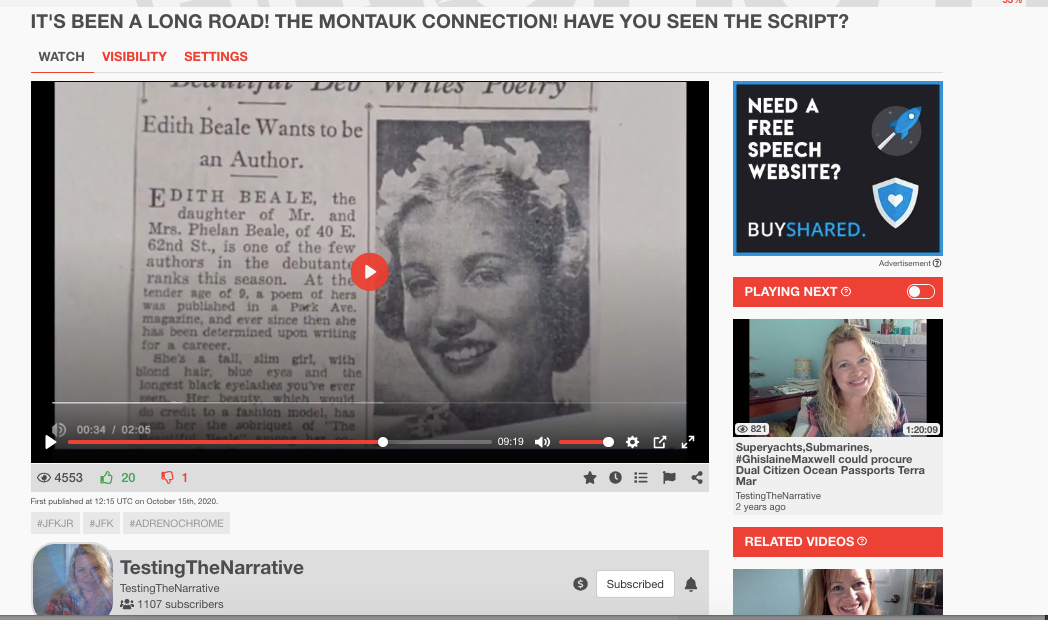
It was Drew Barrymore, who played little Edie [This would have been Jacquelin'es cousin on her father's side. . .Bouvier].
It was also Drew Barrymore on this cover from JFK's magazine called George,
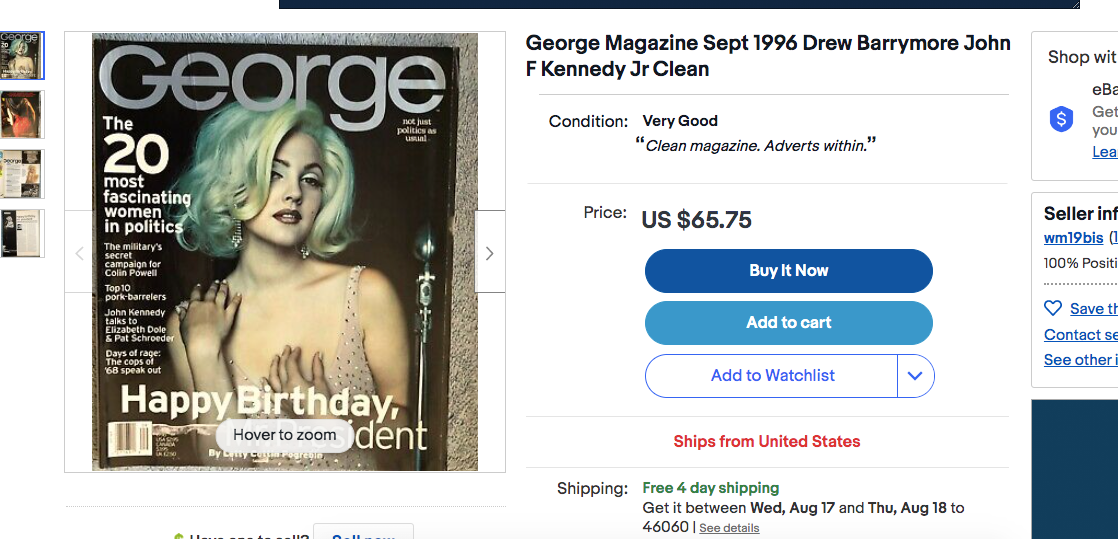
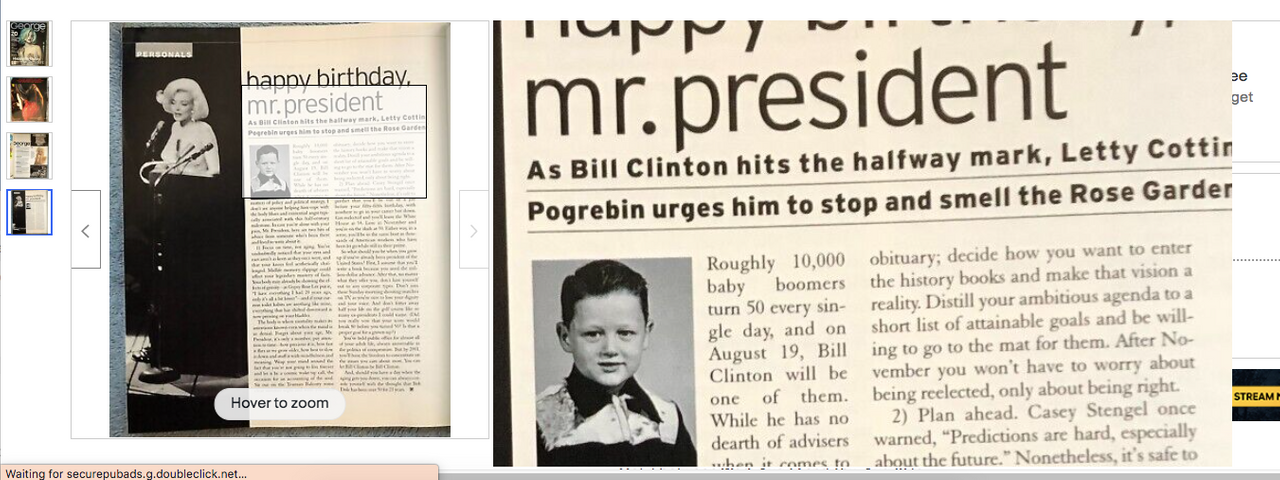
Interesting how Drew Barrymore was also a little girl who worked on set with Heather O' Rourke and Drew thought of Steven Spielberg as a father figure.
Isaac Kappy's Questionable death and all he lived through as a child actor, deaths of Judith Barsi, Heather O'Rourke and the Hollywood Connection
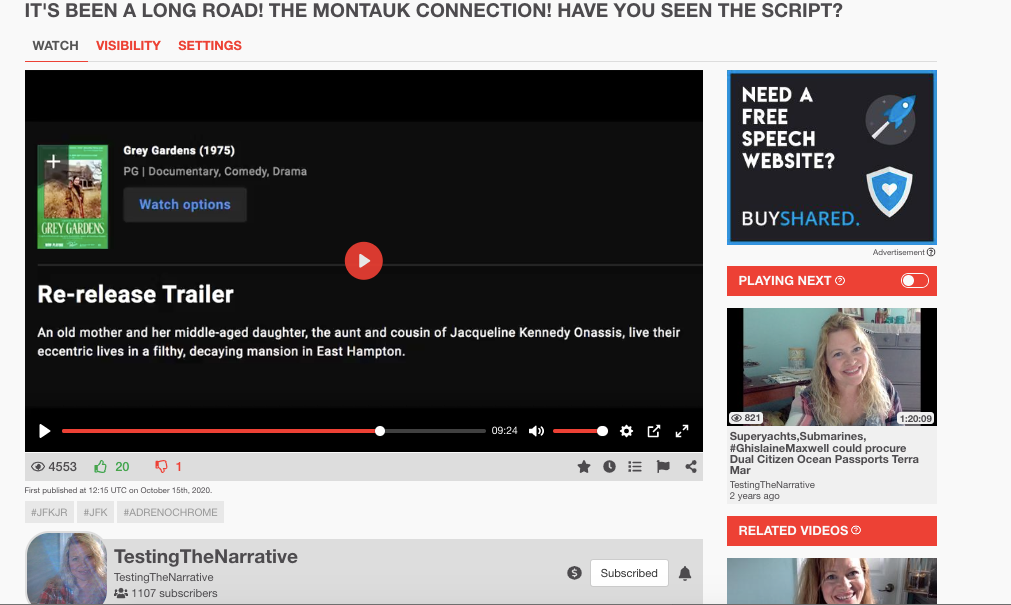
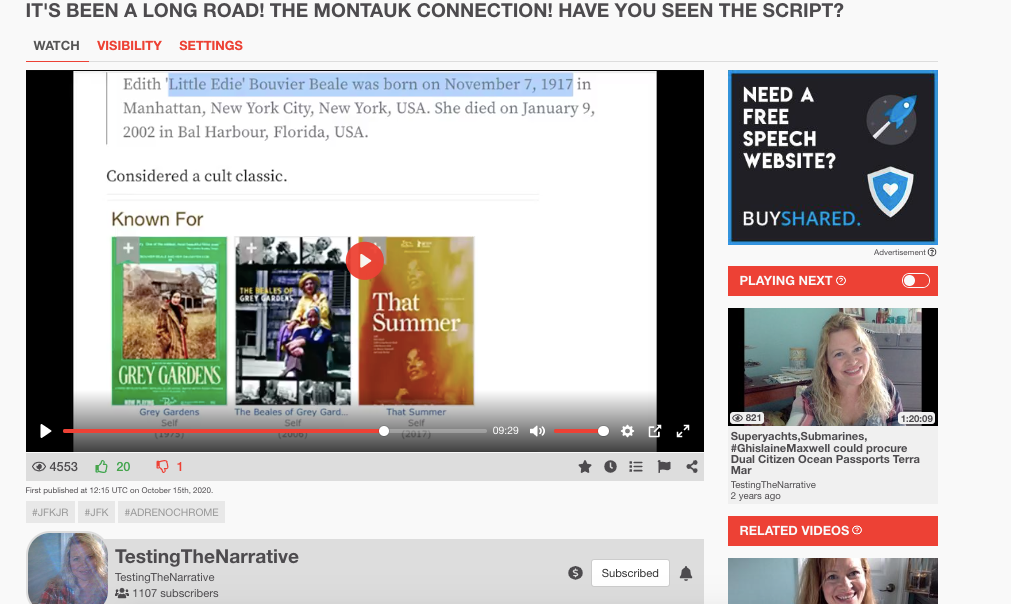
That's an 11.7.1917 or 9.11.1717 or encodes 55
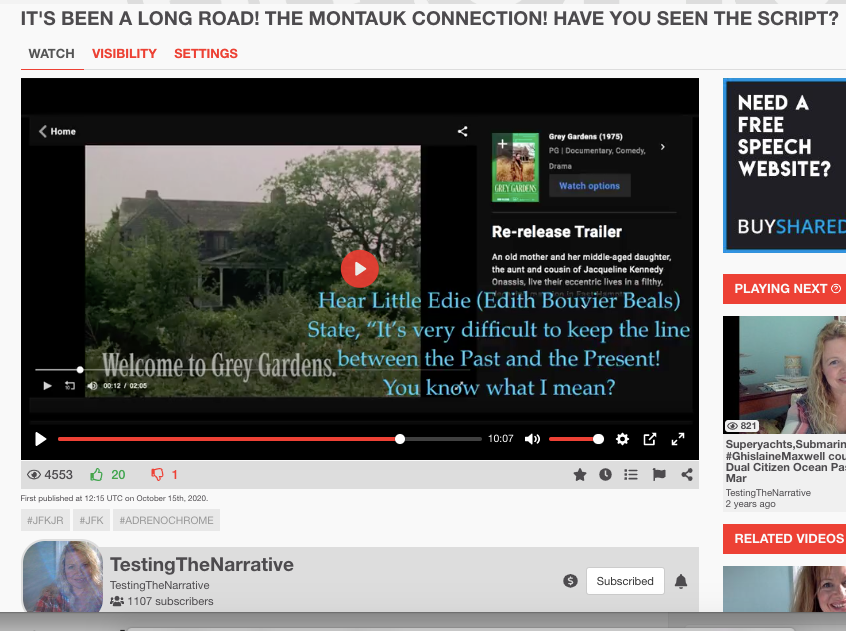
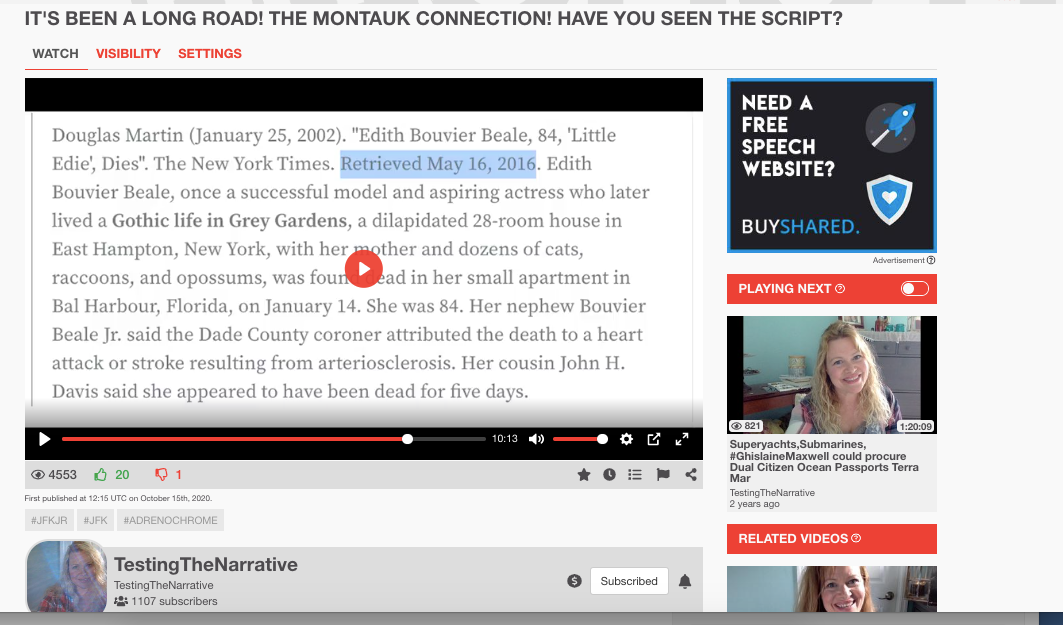
The footage for my #Connections deep dive video can be found here, just pause when you need to read.
You can also enlarge by hovering cursor above bottom right and clicking on the diagonal line.
IT'S BEEN A LONG ROAD! THE MONTAUK CONNECTION! HAVE YOU SEEN THE SCRIPT?
Little Edie's b-day. . .Don't forget Aleister Crowley's Magical Retreat to Montauk around that time period. You can decide if that's interesting or not!
Who were Aleister Crowley, Anton LaVey, Michael Aquino and L. Ron Hubbard? How do they all connect? How does Epstein's ranch in New Mexico tie into what some would call a cult?
Sources
https://www.townandcountrymag.com/society/a10334726/jackie-kennedy-publishing-career/
https://www.history.com/news/10-things-you-may-not-know-about-jacqueline-kennedy-onassis
https://www.vintag.es/2018/01/29-adorable-photos-of-jacqueline.html
https://www.newenglandhistoricalsociety.com/jacqueline-bouvier-comes-of-age-in-new-england/
https://jake-weird.blogspot.com/2020/09/jfk-illusion-of-democracy-jfk-jr-daryl.html

